
Volume 86 Issue 22 Monday 2nd ✦ October 2023
Editorial ✦ Etita The News ✦ Kawe Pūrongo
4
Features
✦
22. Salient Election Poll: THE RESULTS—Ethan Rogacion
24. TikTok on the Clock, but the Parties Don’t Stop: A Ranking of New Zealand’s Political TikTok Pages —Sarah Bakewell
Podcasts
6
Arts & Culture ✦ Ahurea
10
About Us
8 Horoscopes
Salient is published by, but remains editorially independent from, the Victoria University of Wellington Students’ Association (VUWSA). Salient is funded in part by VUWSA through the Student Services Levy. Salient is a member of the Aotearoa Student Press Association (ASPA).
The views expressed in Salient do not necessarily reflect those of the Editors, VUWSA, or the University.
Complaints
Complaints regarding the material published in Salient should first be brought to the Editors in writing (editor@salient.org.nz). If not satisfied with the response, complaints should be directed to the Media Council (info@mediacouncil.org.nz). Letters Got opinions about what we publish? Send it to letters@salient.org.nz and we'll publish it.
✦
Policy Scorecards ✦ Rank the Parties! Creative Space ✦ Auhua
✦
Find Us
Twitter: @salientmagazine
Facebook: fb.com/salientmagazine

Instagram: @salientgram www.salient.org.nz
Salient Podcasts
Instagram: @salient_podcasts
19. It’s Bedroom, Not Bedroom Pop: Keira Batten Coogan’s New EP Lips Are For Talking—Carys Chapman-Vari
2 04. D-Day for Humanities as Confirmed Course Cuts Rock University 05. Hot Takes 06. OPINION: The VUWSA Election Gives Us No Choice 07. Headline Junkie 08. Candidate Kōrero: Chris Hipkins—Labour 10. Candidate Kōrero: Nicola Willis—National 12. Candidate Kōrero: Marama Davison and James Shaw—Green 14. Candidate Kōrero: Debbie Ngarewa-Packer —Te Pāti Māori 16. Candidate Kōrero: Winston Peters—NZ First 18. Candidate Kōrero: ACT
1
26. Predicting the Election with Aotearoa’s Leading Psychic—Ethan Manera Ahuatanga
5
29. Ngāi Tauira
Columns
Tīwae
7 Puzzles ✦ Panga
00 ✦ C0NTENTS ✦ RĀRANGI KŌRERO 2 ✦ Election Contents
✦ Kōnae
3
Ipurangi
9
Catch us on:

The Unedited Session
Salient Podcasts
Editorial
Get Informed & VOTE, Bitches
Elections are exhausting in any old year. But in 2023, when we’ve got skyrocketing rental prices, a rapidly closing window to lower emissions and prevent climate catastrophe, rising discrimination towards our trans whānau, and at the end of it all, a choice between two cis white men named Chris for the country’s next Prime Minister, it’s especially fucking draining.
Trust us—we know how tempting it is to disengage and shut out politics. Maia would much rather be giggling at TikToks of Travis Kelce and Taylor Swift than watching leaders debates where both Chrises sheepishly admit to having ‘embraced recycling’ as a way to combat the climate crisis. Fran would most definitely prefer to listen to music than hear Hipkins deflect questions about the wealth tax, and Luxon avoid releasing the costs of National’s tax plan. But all the same reasons that make us want to switch off are why it’s important that we vote and influence the government as much as we can.
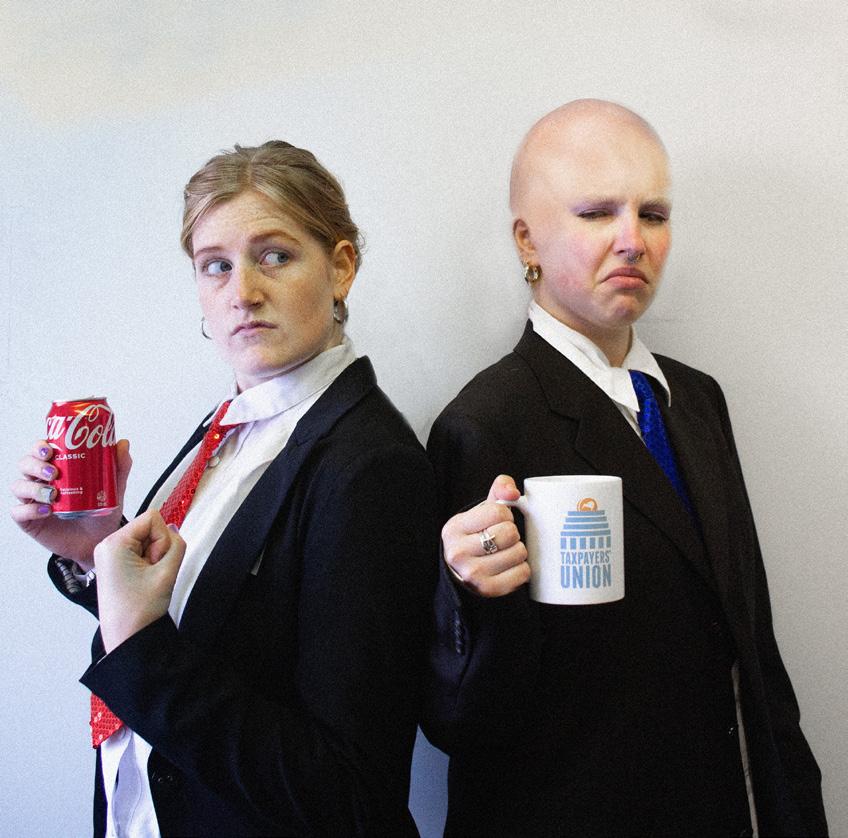
You might think politics doesn’t matter. It does. You might think you’re ‘just not that political’. If you’re a student, by default, you are political. Politics affects the bus you take to campus or where you park your car. It affects the funding this university receives, and the support you can get while you study. It affects your job opportunities, how mouldy your flat can legally be, and how much your landlord can scam you.
New Zealand Electoral Commission data shows that the 18-24 age range has the highest percentage of unenrolled voters. Only 61.87% of people aged 18-24 are enrolled to vote—that leaves nearly 40% of young voters unenrolled and unheard in Parliament. Meanwhile, of the boomers—those above 60 years of age—over 97% are enrolled and out there voting. If you’ve disengaged with politics because it seems to reflect your grandpa more than you, I’m sorry to say it babes—it’s because we need more young people voting. Currently, our grandparents are the ones holding voting power in Aotearoa, but if we exercise our right to vote, young people can turn the tables.
God forbid we convince you to vote, only for you to rock up at the polls and cast the same vote as your parents. Don’t be that guy—the Salient team has been busting their guts to help you form your own opinions. In this issue, we’ve interviewed all the parties thay have had seats in parliment (minus ACT).
Current Labour Prime Minister Chris Hipkins tells us whether he’s stayed true to his radical VUWSA President roots. Deputy Leader of the National Party, Nicola Willis, explains how her party’s tax cuts will benefit students, and reminisces on her time debating at VUW. Green Party Co-Leaders James Shaw and Marama Davison reiterate why ‘the time is now’ to take action with their suite of tax reform and support policies.
Debbie Ngarewa-Packer tells us about the indigenous-centric
ideology of Te Pāti Māori. We’ve even interviewed the deeply controversial boomer supreme, NZ First Leader Winston Peters, receiving some (ahem) interesting takes and insults. The ACT Party refused to engage with student media, even after multiple contact attempts, so we’ve summarised their policies instead.
It’s not all about the party vote, though, and we’ve got some heated election battles in Wellington Central and in Rongotai. If you’re voting in either of these electorates, be sure to check out our interviews with the Labour, National, and Green candidates to find out what they’re offering students. Head to salient.org.nz/election2023 to view all of our Election 2023 coverage.
Oh, and did we mention all these interviews are podcasts too? Yep, if you aren’t a reader but you’re nerdy enough to want to listen to the whole interview (like us), head to the Salient Unedited Sessions to listen—available on Spotify and via our website.
We’ve also got DIY policy scorecards, in a collaboration with Policy.nz, where you can rank each party’s policies for student support, housing, income and employment, and transport, according to how well they align with your values. Ethan brings you election predictions from Aotearoa’s premier psychic, and we’ve got the results of the first ever (in no way statistically accurate) Salient Election Poll! For a break from the policy, Sarah looks at how the political parties are using TikTok, and gives them advice on using the algorithm.
This issue is a fever dream for Pols students (you’re welcome), but it’s not just for them. It’s for every student who feels unrepresented and disengaged with politics. Use this issue as your toolkit to get out there and vote like an informed king.
Arohanui,

 Maia and Fran xx
Maia and Fran xx
3 Election ✦
01 ✦ EDITORIAL ✦ ETITA
Salient is fuelled by:
D-Day for Humanities as Confirmed Course Cuts Rock University
Words by Niamh Vaughan (she/her) and Zoë Mills (they/she)
The long-winded process of staff cuts at Victoria University of Wellington finally has an end in sight, with Vice-Chancellor Nic Smith sending an email to all staff and students on 21 September, communicating the university’s final decision for courses set to be cut.
The decision is the result of the financial sustainability process started by the university in May to cover a projected $33 million deficit for 2023, caused by drops in enrollment and bungled financial decisions by past university management.
Six out of the original 17 courses under review are set to be cut completely: Greek, Latin, Italian, Geophysics, Geographic Information Science, and Physical Geography.
Up to 260 jobs were initially proposed for discontinuation before an additional government tertiary boost package was announced in June, with a total of $128 million funding for all Aotearoa universities—of which VUW is to receive $12 million over two years. With the final decision, the confirmed number of redundancies has dropped to 140.
Seventy-five staff members have already opted for voluntary redundancies. An additional 65 roles are expected to be dissolved through a selection pool process.
Dougal McNeill, former head of the VUW Tertiary Education Union (TEU), said, “It's been a very long and a very difficult year.”
“I think the question of government underfunding has come to a real head and has precipitated this crisis,”
McNeill told Salient. “When you look at the fact that funding for the universities has not been matching inflation for a number of years, there's a problem here that the government could see coming, and didn't actually act to prevent. So I think the bulk of the blame lies with the Labour Government.”
However, he also points to a “lack of vision” from the university around the courses that have been discontinued—as mostly all of them have been humanities subjects.
During the consultation process, the university accepted feedback from staff and those outside the university. A total of 1290 responses from non-staff were received; 1169 of these were for humanities subjects. This is indicative of the mobilisation of staff, students, and alumni to save individual subjects. Theatre is an example—it was originally slated to be merged with English and Film, but after a large campaign involving social media and submissions, is remaining a standalone subject.
Professor Jeff Tatum, a current Latin lecturer, clarified to Salient that although the major in Greek or Latin will be discontinued, VUW students will still be able to learn the two languages as part of a major in Classical Studies through a consortium with Otago University. This means that VUW students will still be able to attend Greek and Language classes, however, the details of this are yet to be confirmed. “Although I don’t consider this ideal, I am gratified that the university concedes the importance of Greek and Latin,” said Tatum.
In the Classics department, one of two senior lecturer positions is to be made redundant by way
4 ✦ Election News the 2 October 2023 Issue Twenty-Three 02 ✦ NEWS ✦ KAWE PŪRONGO KAWE PŪRONGO
of a selection pool. “Losing a colleague is ghastly,” Tatum said, “and unjustified, based on the figures which the VC furnished us during this process. But deplorable stuff like this is happening in several programmes. And it’s extremely unfair. Neither [senior lecturers] deserve this.”
“The reality is that the university is in a desperate financial condition, but this is largely the fault of past bad management by senior leadership. And yet it is academic staff who are paying the price,” Tatum stated.
Courses that have managed to escape the chopping block are not completely out of the woods yet. On 25 September, an email was sent to all Theatre staff and students informing them that while the department wasn't going to be merged with English, a significant degree of courses within the discipline were set to be cut or were under review.
“Theatre remains a standalone, critical, and practical programme at Te Herenga Waka,” wrote a university spokesperson. “We will continue to offer our popular undergraduate and postgraduate degrees, including our industry-leading MFA. […] Over the next few days we will be making final decisions about what courses will be available in 2024, and what in 2025.”
Ella, a second-year Theatre student, said that while she was “very happy” to hear that Theatre would remain a standalone


degree, the current uncertainty around courses is making the faculty feel “on edge”.
“For a lot of us, it felt that there was no point in even finishing our degree if we weren't doing actual Theatre […] but Senior Lecturer David [O’Connell] took voluntary redundancy. And then there's two more positions potentially being made redundant.”


VUWSA President Jess Ye said that while she was glad about the reduction of courses to be discontinued, it was still “such a great loss” for the university.

Last Tuesday, VUWSA sent an open letter to the Tertiary Education Commission, alongside NZUSA, OUSA, and MUSA, in a scathing criticism of the institution. The letter said the TEC has severely downplayed the impact of cuts and underfunding on the tertiary education sector, claiming that the commission is biassed due to its own hand in creating the crisis.
“The Education Commission hasn't been sufficiently held accountable throughout this whole crisis,” Ye told Salient “I feel like there's a clear conflict of interest that undermines their ability to provide quality independent advice.”
Final decisions on exactly which staff members are lined up for redundancy are to be announced by 27 October.
HOT TAKES What issue matters most to you this election?
Climate change. We’re in a time where we’re seeing the effects of climate change really come to the forefront and affect everyone in Aotearoa. It's gonna exacerbate inequality, so I would love to see some strong action.
Probably implementing a capital gains tax, because I think it’s kinda wrong how people can sit on capital investment for years and make money off of nothing while everyone else gets further behind by inflationary pressures.
5 Election ✦ 02 ✦ NEWS ✦ KAWE PŪRONGO
Ani (she/her)
Alex (he/him)
The cost of living. As we know, it is rough out here so I’m really hoping that it will get better.
Aaron (he/him)
Maddy (she/her)
The thing that matters most to me is cost of living. That's what’s front and centre in my mind.
OPINION : The VUWSA Election Gives Us No Choice
Words by Maia Ingoe (she/her)
Unless you actually have a life, you may have noticed it’s VUWSA election season— students’ yearly chance to have somewhat of a say in who makes up our student union. By the time this article is published, voting on yet another lacklustre VUWSA election with, for the most part, zero options, will have closed.
It wasn’t any surprise to anyone who the newly elected VUWSA President was when announced at the AGM on 28 September: Marcail Parkinson, a student activist well-versed in VUWSA and university bureaucracy. Whether Marcail is qualified or not isn’t the problem here: it’s that she’s elected uncontested, with no brave challenger in sight.
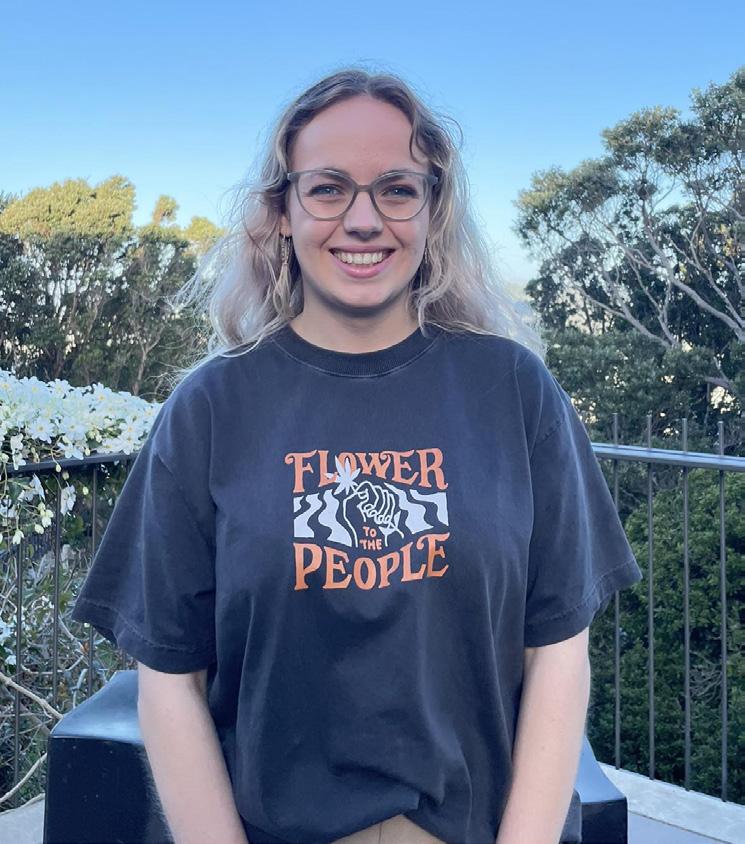
This is the third year in a row where a VUWSA President has been elected uncontested, signalling a dire trend of dwindling engagement in student politics. This is more evidence than ever that candidates willing to put their dignities on the line to advocate for students are a critically endangered species.
The President’s role isn’t the only one with a single candidate putting their name forward. Academic Vice-President, Clubs and Activities Officer, and Sustainability Officer also all have one candidate to choose from, and were elected uncontested.
Within this zero-choice zone there is no ability to hold student representatives accountable. Students just have to shrug their shoulders and accept the only running candidate. If we have an election for only one candidate, is it really democratic at all?
I dragged myself to the VUWSA exec ‘debates’, held a week before voting opens. I say debates with a grain of salt, as they’re a tired panel where each person politely gives a practised speech. There was a tiny crowd watching in the Hub—most of them likely just there to eat their lunch. There was no engagement and none of the
heckling you might’ve found at the Wellington Central debate that same week. Student politics, it seems, is just plain boring (I mean, even Salient didn’t write anything about it until now).
This dire state of uncontested candidates is not the fault of the student body, but the fault of VUWSA for failing to stay relevant and put forward student candidates that can inspire, engage, or mix things up in the stagnant executive system. The VUWSA exec and election alike are inaccessible and unnoticed, so much so that a mate of mine admitted they’d never even realised the VUWSA offices were there, always skipping past the entrance to the student union to go straight to pat some dogs at the bubble. VUWSA is struggling with a crisis of meaninglessness.
Will yet another uncontested President be the one to fix its chronic lack of engagement? Or will the era of willing candidates finally be stretched to its end, and student politics cease to exist in years to come?
6 ✦ Election 02 ✦ NEWS ✦ KAWE PŪRONGO
Newly elected VUWSA President Marcail Parkinson
HEADLINE
National’s Proposed Benefit Plan Would Result in “More Children Living In Poverty”
This past Tuesday, National announced their “traffic light system” policy to change the Job Seeker Support Benefit. National’s spokesperson for Social Development, Louise Upston, claimed that Labour removing "clear consequences for jobseekers" has meant 60,000 extra people are receiving the benefit since the last National Government. National’s consequences for those who don’t meet benefit obligations could include reductions or suspensions of benefit payments, up to three months of mandatory community work, and less power managing their money. Those on the benefit would also have to reapply every six months with evidence of job applications and interviews. The Prime Minister denounced National’s proposed sanctions stating, “Harsher sanctions don't work. National's plan today would simply result in more children living in poverty, because that's what happened last time.” Ricardo Menéndez-March, Green Party Social Development spokesperson, called the National policy “cruel”, “ill-thought-out”, and “dehumanising”.
The Food Duopoly Strikes Again!
Advance to Cuba Street: if you pass Go, collect $200! The opening of a new Fresh Choice Metro on Cuba Street is saving a Salient News Editor’s chicken soup. “As someone who flats on Cuba, I will very much appreciate not having to walk all the way to New World Metro on Willis Street at 8 p.m. to buy a singular carrot because I started making chicken soup before realising I didn’t have any,” Ethan Manera announced to his X followers last Wednesday. The new supermarket is set to open in December. Fresh Choice is operated under a division of Woolworths New Zealand, who also own the Countdown and SuperValue supermarket franchises.
“WOKE LESBO” Slams NZ First Candidate
CW:
Transphobic Comments.
“I’m not going to deny people’s existence,” stated Chlöe Swarbrick on last Monday’s TVNZ and Re:News Young Voters Debate. Swarbrick went head to head with NZ First candidate Lee Donoghue while discussing two of his party’s policies: removing “gender ideology from the curriculum” and restricting transgender people’s access to public bathrooms, based on a binary idea of biological sex. Host Anna Harcourt presented evidence from LGBTQ Teen Data in 2019 that trans and nonbinary teens face a higher risk of sexual assault in schools that prevent them from using bathrooms or locker rooms consistent with their gender identity. Donoghue claimed he had evidence against the presented statistic, but “not in front of [him] right now”, and that trans people are “making a mockery of women’s spaces”. Swarbrick clapped back that because of “actual data [...], we know our gender minority whānau are disproportionately represented in mental ill health, addiction, and suicide statistics.” Donoghue began, “There are actually a lot of lesbians and gays against…”, but was interupted by Swarbrick stating she was speaking “on behalf of the woke lesbos” and denouncing the “rhetoric and fearmongering behind the likes of [NZ First]”.
Hollywood Writers Reach A Deal
After five months, the Hollywood writers’ strike is ending. An agreement between the Writers Guild of America (WGA) and an alliance of studios reached a deal on Sunday, 24 September, making the strike five days short of the longest of its kind in history. A summary of the deal will be public on Tuesday. The Hollywood actors continue their strike, but the success of the writers renews hope for their own negotiations.
7 Election ✦
02 ✦ NEWS ✦ KAWE PŪRONGO
LABOUR
CANDIDATE KŌRERO
PRIME MINISTER CHRIS HIPKINS
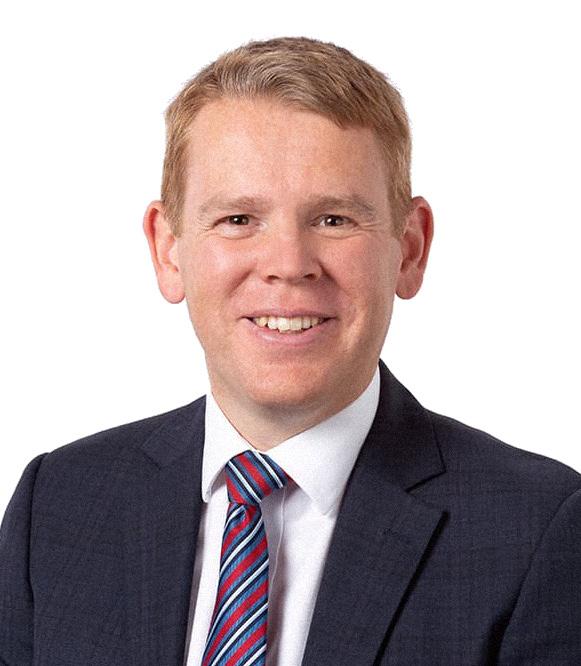 Words by Zoe Mills (they/she) and Maia Ingoe (she/her)
Words by Zoe Mills (they/she) and Maia Ingoe (she/her)
We met the Prime Minister at his office in the Beehive—Chippy was 15 minutes late, largely due to a tray of sausage rolls being wheeled into his office (fair enough).
”Hi, I’m Chris,” the PM introduced himself, chipper if not a bit clammy, fresh from National’s tax policy announcement (and Labour’s worst polling results since 2017, dipping into the 20s). We took a seat on one of the sofas in his Beehive office and wasted no time getting stuck in.
Chippy’s Student Advocacy Days
Chippy was VUWSA president in 2000 and 2001, where he was known for proposing considerably leftist policies, focused on tertiary education, student wellbeing, and lowering the price of a pint at the Hunter Lounge. Hipkins asserts that he’s “stayed true to my roots”, but in 2023, his “field of vision is wider”.
“My values are still exactly the same, my ideals around education are still the same. But I have a slightly more expansive view.”
We’d brought in a selection of quotes from Hipkins' VUWSA days, published in his regular Salient columns. In 2000, Hipkins said, “It has become obvious and widely accepted that the level of government support for tertiary education in New Zealand is woefully inadequate [...] it's time for them to put their money where their mouths are and give tertiary institutions sufficient funding to allow them to achieve their goals.”
Today, Hipkins says he maintains that view, and has a track record of improving tertiary funding in Government.
“I’m not satisfied with the levels of funding that we've got actually. Even just in the last couple of months, we've put in an additional injection of funding into tertiary education to boost funding rates as a result of concerns at institutions like Victoria University.”
Support for Students
Back in 2001, Hipkins said a universal student allowance was achievable within a 10-year period; currently, only 12% of students are eligible to access student allowance. He was quick to blame reductions in tax, seemingly pointing the finger at National.
“I am of the view that tax cuts reduce the available funding for things like quality tertiary education, which is why we're not campaigning on a program of tax cuts. The more we see government revenue reduced through things like tax cuts, the less flexibility there is, the less options there are in the future to do more for education, for health, for other public services.”
We asked Hipkins if he would support VUWSA’s Study Wage for All campaign, which urges for a $385 universal allowance. Hipkins wouldn't confirm his party’s support for the campaign, admitting, “That's not something that I think we could credibly be offering at this point.”
Hipkins blames the current “tight financial environment where every additional dollar of government spending is getting more and more difficult to achieve. Over time, I'll always continue to push for more support for tertiary students.”
It’s a pattern throughout our conversation: Hipkins supports a lot of ideas, but fails to commit to them.
8 ✦ Election
VOTE! ELECTION ✦ CANDIDATE KŌRERO
23
However, Hipkins did manage to confirm that half price transport fares for under 25s would “absolutely” continue under a Labour Government. He quickly withdrew this certainty when asked about extending free fares to under 25s. “In time, if it was affordable, you know, there might be ways, it might not be all under 25s… there’s more targeted stuff that we could do.”
Tertiary
Hipkins has confirmed that first year fees free would continue under a Labour Government, but remains uncertain as to whether additional free years would be pursued. “I don't think that we'll be adding more years to that in the foreseeable future, just because [...] if we were going to put more money into tertiary education, I'm not sure that's the first place that we would go.”
Hipkins remained sensibly mild throughout our chat, only making a handful of digs at the opposition. He argued that you couldn’t guarantee first year free under a National Government, because ACT “have been pretty clear they want National to be more radical around the cuts that they’re making” and that first year free will be “first on the chopping block”, despite National commiting to support it.
When asked about Labour’s long-term plan for tertiary education, he said that most universities are doing through a “restructuring exercise” at the moment… and pointed to how he’s changed the funding model for tertiary education, referring to the Education Minister’s Tertiary Funding Model.
Like almost every politician we’ve spoken to, Hipkins aims to solve the housing crisis through the revolutionary idea of Building More Houses.
Housing
We asked Hipkins how the government will support the creation of housing in the CBD that is accessible for students and low income earners. Hipkins noted changes Labour made by loosening building laws so that buildings of up to three stories high would not need resource consents. But, “fundamentally, it's a supply and demand problem, there's more demand than there is supply”.
Hipkins admitted that KiwiBuild, building only 3000 houses, didn’t achieve the success it aimed for, but that his government’s work in both improving private sector builds and building more state houses has been successful. “We're building more state houses than any government since the 1950s. And again, that helps with the rental affordability issue because the more state houses there are the more affordable rental becomes overall
within the market.” But even after two terms in government, he says “we’ve just got a lot of catching up to do”.
Hipkins thinks that mechanisms such as rent freezes or caps would be ineffective for a New Zealand context. “It's more likely to result in fewer rentals being available in the first place, which would mean that the price of those rentals would probably actually go up rather than down.” He notes the yearly rent rise limitation introduced by Labour as something that does work, “so landlords can't keep hiking up the rent”.

While Labour introduced the Healthy Homes Standards, they don’t have a policy around strengthening enforcement or compliance. “We're always looking at how we introduced the standards for a reason, because we do think landlords should have to comply with them.”
When pushed, Hipkins said there will be “elements” in their housing policy to address compliance. At the time of writing, Labour’s housing policy had not been announced.
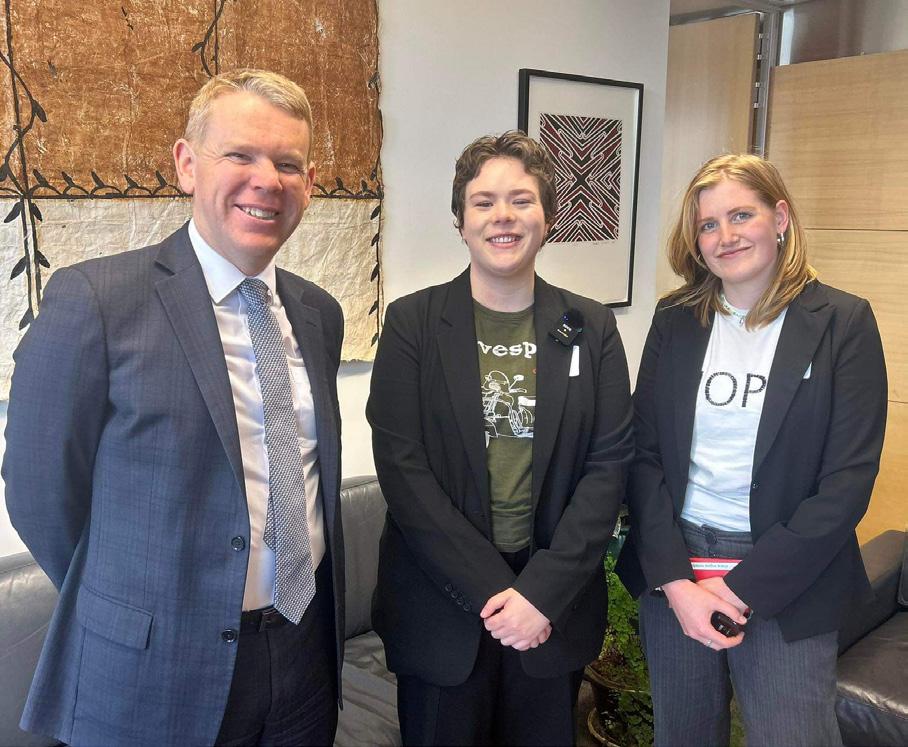
“Fundamentally, this election is about a choice. It's a choice between a government that wants to cut government support through cutting taxes, or a government that wants to continue to increase it. And the Labour Party stands firmly on the side of increasing tertiary student support.”
However, it seems that Hipkins is unclear of what tertiary student support actually looks like.
Our interview solidified all that we’d read in the media about his campaign: he seemed slightly unmotivated and unenergetic. The pragmatic Covid-19 Response Minister who led us through the pandemic was now staring down the barrel of an election where he just can't quite seem to grasp voters in the way that 2017-2020 Jacinda-mania did.
9 Election ✦ 02 ✦ NEWS ✦ KAWE PŪRONGO VOTE!
✦ ✦ ✦
Listen to the full interview on Salient's Unedited Sessions podcast! Election
NATIONAL
CANDIDATE KŌRERO
NICOLA WILLIS
Words
Cost of Living
Her top three priorities for students? “Cost of living, cost of living, cost of living”. Willis said National are committed to multiple cost of living measures to support students, including increasing student loans and allowances in line with inflation, continuing to offer interest-free student loans, and vowing not to reverse the current first year fees free scheme.
When asked if National would increase student loan and allowance payments to a liveable level so students don’t need to balance work alongside full-time study, Willis said, “I don't think in and of itself it’s bad that students are often juggling paid work and study.”
Nicola Willis says she was never “a Young Nat or anything” during her time at Victoria University of Wellington. It's been a huge turn around for the MP vying to be New Zealand’s next Finance Minister, who says she “wasn’t even into politics” while studying a BA in English Literature in the early 2000s. The National Party Deputy Leader was, however, a champion debater while studying, and admits that the debating society is the “dorky” way she met her now-husband.
“He was the third speaker, I was the second speaker. We went to various international national tournaments together and fell in love, as you do.”
Nowadays, Willis is campaigning alongside National Leader Christopher Luxon for a change in government, and has her sights set on leading the country’s economy. Salient sat down with Nicola Willis in her office to hear her plan for students.

“For many years, there have been students who work in order to supplement their income while they study, whether they work during the summer break, or whether they work while they're studying. In fact, my experience has been that students who have developed a work record while studying are often really employable.”
Most importantly, National “want to make sure that you're paying less tax when you're working”, she said.
Their flagship cost of living policy would see tax cuts for middle income workers, but those in part-time work would only receive around $4.31 per fortnight. Willis says this is because those in the “squeezed middle” are a group who are “really struggling”.
“We want to have a tax system that ensures that those people who are busting a gut and are working full time are getting more reward from their effort. We do think the cost of living is very important for other groups, and we’ve always maintained that the most important thing is getting a lid on inflation. Because unless we get inflation under control, students are going to continue to struggle very badly.”
10 ✦ Election
VOTE! ELECTION ✦ CANDIDATE KŌRERO
23
by Ethan Manera (he/him)
Housing
Willis says the Labour Government has been “determined to blame landlords for the housing problems in this country”, but reckons, in reality, the issue is far more complicated. National’s policies to fix the rental market aim to make it easier to be a landlord, and include re-allowing landlords to evict tenants without cause and giving landlords a tax cut in the form of re-introducing interest deductibility, which Willis says will put “downward pressure” on rents.
When asked if National would implement a mechanism to ensure savings from the landlord tax cut is passed onto tenants, Willis said, “No, because around the world where rent controls have been placed on, the evidence is that it reduces housing supply, which just gets us back to the beginning of our problem.”
The party also wants to allow people under 30 to tap into their KiwiSaver fund to pay for rental bonds.
National also wants to scrap the Medium Density Residential Standards (MDRS), allowing councils the choice to build either higher density housing or in rural areas. The MDRS currently means higher density housing is able to be built in suburban areas without consent from neighbours. The National Party formerly supported this policy, which was introduced as a bipartisan housing accord, before withdrawing their support earlier this year in favour of a council-led approach.
She said that, simply, councils need to approve more consents for housing to be built. “That can be greenfields, it can be building up, it can be building out, but if [local councils] don’t zone for enough of it, we as Government will have to intervene.”
Transport
Willis says that she understands the frustrations students feel with Wellington’s public transport system. “The biggest challenge that has come to my desk on public transport in Wellington is the fact that the bus service is still so incredibly unreliable: cancellations of buses, buses running, late buses that never show.”
She says National will scrap Let’s Get Wellington Moving and focus on getting a reliable bus service and building more roads, rather than “fantasising about trains to Island Bay and doing new visualisations of what light rail might look like. [...] My kids love their train sets too, but you know, we're all adults now.”
The party has promised to begin work on a second Mount Victoria tunnel within their first term of government, and to “sort out the basin reserve” by building more roading infrastructure to Wellington airport: a policy they've nicknamed “four lanes to the planes”.
They're also keen to scrap the current half-price public transport subsidy for under 25s, as Willis says “there isn't good evidence” that it “has increased the use of public transport in any meaningful way”.
Public Service
National are proposing cuts to the ‘backroom bureaucracy’ of public service in order to reduce government spending. Willis says that Labour’s spending has been out of control and “despite spending more, we're not getting the impact we need” out of our public service.
“Our current trajectory as a country is unsustainable [...], we are running massive deficits, and yet our social services haven't demonstrably improved.”
When asked what this would mean for those working in the public service, Willis said their goal “is not about numbers of jobs, [...] there will still be graduate jobs.”
“There are options that will mean job vacancies won't be filled, there are options that may mean that some teams working on existing projects are no longer critical. There's a lot of ways that [spending reductions] could be made.”
✦ ✦ ✦

“National offers a better path,” Willis said. “I think it’s pretty obvious to smart people that New Zealand’s been heading in the wrong direction.”
Her final words for undecided voters? “A vote for Labour is a vote for more of the same failure which we’ve had over six years. Leopards don’t change their spots.”
11 Te Taiao ✦ 02 ✦ NEWS ✦ KAWE PŪRONGO VOTE!
Listen to the full interview on Salient's Unedited Sessions podcast! Election
GREENS
CANDIDATE KŌRERO
MARAMA DAVIDSON & JAMES SHAW
Words by Ethan Manera (he/him)
Cost of Living
The Greens want to reform the current student allowance and living cost policy by introducing an “Income Guarantee”, which would see students receive $385 per week to help with the cost of living. Unlike student loan living costs, the Income Guarantee would not need to be paid back, and would be available to anyone who is unemployed, with an additional top up for those with dependent children. “We just want to be able to say to everybody, regardless of your circumstances, whether [...] you've lost your job, or if you're studying or retraining or anything like that, this support will be available to you. Guaranteed. If you need it, when you need it, whenever you need it,” Shaw said.
The Green Party have hit the ground running this election, being the first party to release their full suite of policies, which they say are unapologetically student-focused. The party’s policies include a universal student allowance, reforming student accommodation, and working towards a student debt write-off.
Salient went along to Parliament to sit down with the Green Party Co-Leaders, Marama Davidson and James Shaw, who managed to squeeze in a hectic and fast-paced 20-minute chat about their top priorities this election.

Housing
Davidson, who is the only party leader in Parliament that is a renter, said housing and renters rights are a top priority for the Greens: “it really is our focus”.
The party is campaigning to restrict rent increases to only 3% per year. Despite this proposal facing strong criticism by economists, Davidson says critics aren't considering the full picture. “They've been looking at rent control in isolation of housing supply, and that's why we have included the increase of housing supply alongside rent controls. So automatically we've just shoved their argument back out the gate.”
They also want to implement a rental warrant of fitness, as a mechanism to enforce the Healthy Homes Standards. “At the moment, the Healthy Home Standard is entirely voluntary.”
12 ✦ Election
VOTE! ELECTION ✦ CANDIDATE KŌRERO
23
Under their policy, the standards will be extended to include other basic features that “all homes should have”, such as safe electrical wiring, smoke alarms, and secure locks on doors and windows.
Shaw said that the Labour Government hasn't done enough to fix housing issues faced by students in Aotearoa. “These are some really big challenges that we have in our country, and basically every other party, as far as we're concerned, is only prepared to go part of the way to solve the problem. What that means is that they're making a deliberate choice to actually keep the problem in existence.”
Climate
Shaw says he’s proud of the work he's done as Minister for Climate Change, and reckons the Green Party is “the only party that is putting forward solutions to the climate crisis with the scale and the urgency [necessary]”. He wants to continue work on emissions reduction by setting up a Climate Change Ministry to oversee the transition to carbon zero, introduce a price on agricultural emissions to charge polluters, ensure we meet our Paris Agreements, and focus on “nature based solutions” to climate change.
He acknowledges that “the climate has changed, and it's going to keep changing”, so wants to also focus on adaptation and building Aotearoa’s resilience by creating a fund for central and local government to implement climate resilient infrastructure, and pass a Climate Change Adaptation Act that includes “targets to drive a long-term policy response”.
Transport
Shaw reckons the Greens’ track record on transport speaks for itself. “We are the party that has led on public transport. [...] We need to make it affordable, we also need more of it.”
“Wellington has had a half decent public transport system, but it needs to be a decent public transport system,” he said. They support the Let’s Get Wellington Moving plans, which include light rail throughout the city, increased pedestrianisation, and more bus and cycle lanes “to give people more choices about how they get around”.
The Greens want to offer free public transport for students, and invest in rapid nationwide regional rail for passengers and freight. They support the clean car discount and ute tax. “The time is now to create affordable, inclusive, and climate-friendly transport options that work for everyone,” they said.
Tax
Their proposed tax package would see no tax paid on your first $10,000 earned, the introduction of a 2.5% wealth tax on an individual's assets over $2 million, and changes to Working for Families by creating a Family Tax Credit of $215 a week for the first child and $135 a week for subsequent children.
Despite all the Greens’ policies being fully costed, their radical plans cannot be paid for without the implementation of their proposed wealth tax, which their likely coalition partner, Labour, have repeatedly ruled out. So where does that leave their policy? Marama says it's still on the table. “No politician can rule anything out. That power is for voters, that power is for students.”
Pitch to Students

As we wrap up our quickfire interview and before they rush into Parliament's debating chamber, the co-leaders offer their pitch to students, cheekily throwing in their campaign slogan.
Marama said, “We know students care about ending homelessness, protecting our environment, we know students are leading the charge and calling for more climate action. It is only the Green Party that has the plan and the experience to resolve those issues. [...] The time is now.”
James added, “Look, students are dealing with a lot right now, you know, when it comes to their own cost of living, and we are putting forward policies that are going to help to do something about that. [...] We're out of time here, you know, we've been arguing about this for three decades. The time is now.”
13 Te Taiao ✦ 02 ✦ NEWS ✦ KAWE PŪRONGO VOTE!
Listen to the full interview on Salient's Unedited Sessions podcast! 13 Election
TE PĀTI
M ĀORI
CANDIDATE KŌRERO
DEBBIE NGAREWA-PACKER
Words by Ethan Manera (he/him)
Tax
Ngarewa-Packer says the main goal of Te Pāti Māori is to end poverty, proposing “a suite of policies” to do so.
She believes better things are possible for Aotearoa, but not without sweeping changes to the tax system. “We could be all living better, we could have free dental, we could have free health[care], we could be affording to live and put kai on the table, we could be affording our rents, we could afford to buy homes if we could flip everything upside down.”
When it comes to Te Pāti Māori’s political ideology, co-leader Debbie NgarewaPacker says it’s complicated. While the party was formerly “comfortable with National”, she says they now “lean left” in the “Western-centric sense”. But Ngarewa-Packer thinks they’re best described as simply “indigenous”.

“We are an indigenous movement. [...] We are the only party that believes in Māori.”
It was a hectic day when we visited Te Pāti Māori. NgarewaPacker’s Co-Leader, Rawiri Waititi, was suspended from Parliament for allegedly breaching a court suppression order while speaking in the house, leaving her to pick up all his responsibilities. But she isn’t bothered—“we dont give a shit”, she laughs. Despite the chaos, Ngarewa-Packer invited us to park up on her couch and chat about their goals and aspirations for the upcoming election.
Te Pāti Māori want to readjust all income tax thresholds to target higher income earners and fix what they call our “broken tax system”. Under this plan, workers will pay no tax on their first $30,000, and those earning above $300,000 pay 48% tax on income above this level. Ngarewa-Packer says this would see a tax cut for 90% of workers in Aotearoa and “shift the tax burden from the poor to the wealthy”.
They also want to remove GST off all food, calling it a regressive tax which impacts “lower income whānau who are forced to spend nearly every cent they earn”. This is in contrast to Labour’s policy, which would only see GST removed off fruit and vegetables.
Ngarewa-Packer says a wealth tax is also necessary to reduce the gap between the rich and the poor. She wants to see a 2-8% tax on net wealth between $2-10 million. “It's not about being anti wealthy—it's just being anti a tax system that's been designed to keep the super-rich rich, and to keep everyone else and the struggling poor.”
14 ✦ Election
VOTE! ELECTION ✦ CANDIDATE KŌRERO
23
VOTE! Education
While most of Te Pāti Māori's education policy is focused on resourcing kaupapa Māori education and “overhauling the Pākehā mainstream system”, Ngarewa-Packer says that they also have some bold plans for supporting students in the tertiary education sector.
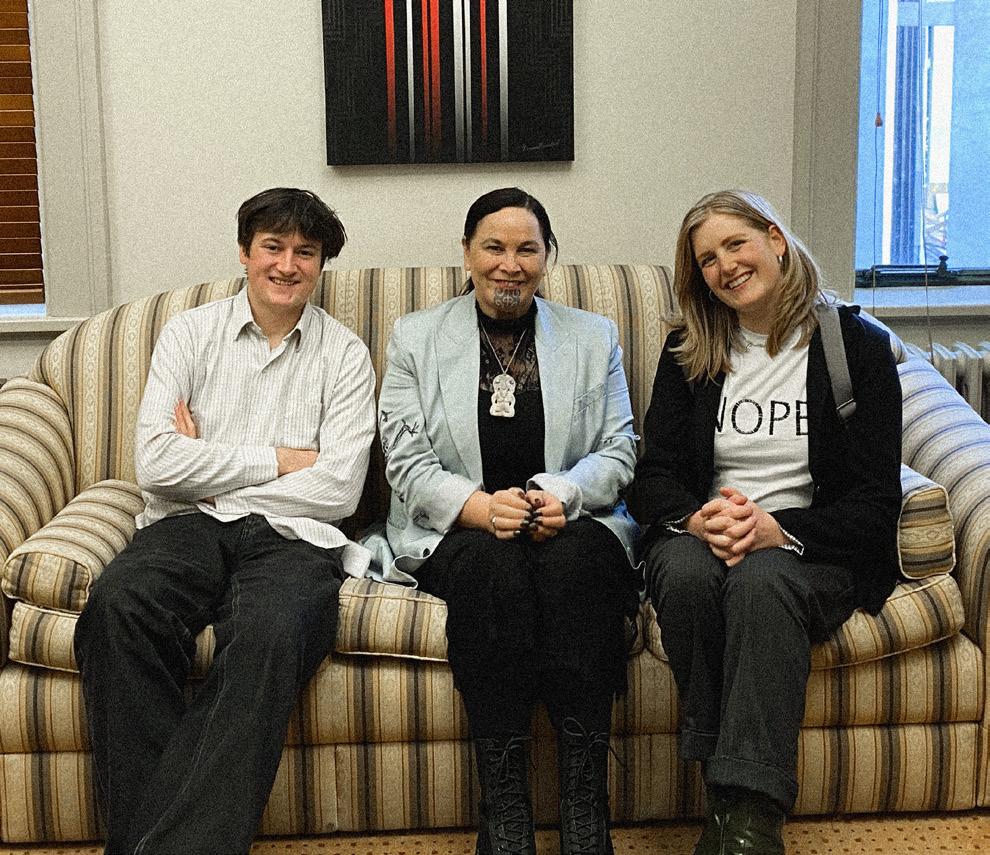
Te Pāti Māori want to scrap the living cost component of student loans in favour of a universal student allowance at double the current weekly rate. They also will offer free public transport for students, and work towards writing off all student debt for graduates who work in Aotearoa for five years after study.
Ngarewa-Packer, who is currently studying a PhD at Massey researching racism in New Zealand's Covid-19 response, says her drive to support students financially comes from her own experiences while studying. “I was broke in my era [...] so I don't know how the hell you guys all cope.”
“Education is the key to everything,” she says. “I’m the third generation born since the land confiscations in Taranaki. Education was hugely invested in my family to get us out of the pits of where we’d landed with the loss of all our economic base.”
Environment
Ngarewa-Packer says alongside Te Pāti Māori's main goal of ending poverty are their policies aimed at tackling the climate crisis and improving the environment. “[It's about] our environment, our taiao, and I believe that our taiao policy is second to none. And it's because it comes from within our puku; it’s our legacy, whether we like it or not.”
One of her main focuses this term has been her members bill which sought to ban seabed mining. The proposed law was voted down by both Labour, National, and ACT, meaning it did not progress in Parliament. “We've had that sitting around for about the last nine years,” she said, but they'll still be campaigning on it this election.
Te Pāti Māori also want to ban all fossil fuel exploration in Aotearoa, phase out synthetic nitrogen fertiliser use on farms, and bring agricultural emissions into the Emmisions Trading Scheme so polluters pay for their emissions.
Opponents and Coalition Negotiations
While Te Pāti Māori have formed a government with National in the past, both parties have ruled each other out this time round, with National calling Te Pāti Māori “racist”, and Te Pāti Māori labelling National and ACT a “coalition of colonisers”.

When asked who they would work with this time, NgarewaPacker joked that “ideally, we would be big enough to play by ourselves”, but acknowledged that Labour and the Greens would be likely partners.
When asked her thoughts on some of the other parties in the running, she didn't hold back, describing National as a “coalition of blueberries'', ACT as “a barrage of bigots that should be just stopped from coming through the front door if I were to run this country”, joked that NZ First “belong in the rest home”, and said Labour had “the biggest mandate and did the littlest with it”. She took a more tender-hearted approach to the Greens, who she said are “allies”.
While Ngarewa-Packer says their party is unapologetically Māori, she believes that Te Pāti Māori’s vision for Aotearoa will improve life for everyone. “To be honest, our goal is to advance all peoples. The issue that we have, and I know that some people don't like us saying this, is that we’re not even, and we need to even out the playing field.”
15 Te Taiao ✦ 02 ✦ NEWS ✦ KAWE PŪRONGO
Listen to the full interview on Salient's Unedited Sessions podcast! Election
NZ FIRST
CANDIDATE KŌRERO
WINSTON PETERS
Words by Ethan Manera (he/him)
CW: Transphobic Comments
Winston Peters (Ngāti Wai) is a political warhorse: the 78-year-old has been in and out of Parliament since 1978 and held positions such as Treasurer, Minister of Foreign Affairs, and Deputy Prime Minister. But after NZ First failed to make it back into Parliament in 2020, Peters has hitched his wagon to inflammatory culture war issues, flirting with climate change denialism, vaccine skepticism, and anti co-governance rhetoric.

Winston kindly came along to the Salient office for a robust and hostile 30-minute chat peppered with personal insults, including calling me ignorant, a hypocrite, and saying I need to find a new job.
Coalition Negotiations
Because NZ First is usually one of the only minor parties willing to work with both Labour and National, Peters has often found himself in the ‘kingmaker position’, with the power to form a government with either side. But this time around, he ruled out working with Labour, “because they simply lied to me about the secret agenda they had based on race. [...] They did it under the table, and when I found out I said, ‘We're never going to go into government with them again.’”
He wasn't keen to discuss NZ First’s role in a potential National led government, saying “I didn't come to this interview with Salient to talk about the National Party [or] the ACT party.”
Student Support
When asked if he still supported NZ First’s previous policy to wipe student loan debt for Kiwis who stayed working in New Zealand for five years, Peters denied that this was ever their policy, asking, “Where's that policy written?” When I presented a 2017 Stuff article written by Henry Cooke, he claimed “Mr Cooke didn't write what the policy was.”
Despite this, he said he still supports it, as well as being “still very strongly in favor of universal student allowance”.
“But I've just done the latest fiscals on the way up here over the last hour, driving in the car, and we are saying to ourselves, ‘The situation is so dire that all these promises other political parties are making cannot be fulfilled, they haven't got the money.’”
Housing
He said the biggest thing that can be done to improve the unaffordable housing and rental market is to reform the Resource Management Act. “We are going to have to see that commodity pricing of housing is not 45% higher in cost in Australia. There's no excuse for this.”
He said to achieve this we need to encourage the use of wood, “because we are the most efficient [...] good wood product grower in the world.”
Peters takes an anti-immigrant stance on housing, saying, “100,000 immigrants coming to this country in the next year [is a] sugar hit” that will drive up house prices.
When asked if he supports controls on the rental market, such as what the Green Party are proposing, Peters said no, and requested I not bring up the Green Party again. “Please don't ask me to talk about the Greens’ policies because they're in la la land, they're absolutely in la la land.”
16 ✦ Election
VOTE! ELECTION ✦ CANDIDATE KŌRERO
23
“Most of them have never run a business of their own. I have, and I know what it's like to hire staff. I know the cost of having to carry that thing and do all the problems yourself.”
NZ First’s full housing policy is due to be released on 2 October.
Cost of Living
To tackle the cost of living crisis, Peters said he’s going to change supermarket regulations by “busting through the duopoly” and scrapping the Grocery Commission.
He also said he wants to conduct a “full-scale bank inquiry” into Australian banks which are “ripping off New Zealand customers”.
The NZ First website claims the party plans to remove GST on “basic food”, but Peters said that policy is now on the backburner. “We can't go ahead with that one any longer since the [Pre-Election Economic and Fiscal Update] came out.”
“Everyone out there who's a realist knows that we're in economic trouble, and we've all got to put our shoulders to the wheel, so to speak, to get on top of it.”

Fringe Policies
I presented Mr Peters with his NZ First policy document, consisting of merely 36 bullet points, to clarify some of his positions.
Their third policy states “under NZ First, vaccine mandates will end”, despite all vaccine mandates being lifted last year. Peters argues that the consequences of mandates have not ended. “People have lost everything and got no compensation whatsoever, or taken [the] vaccine and got seriously injured [...] and my job is to stop it going on into the future.”
Another of his policies is to “stop indoctrination by removing gender ideology from the curriculum, especially from primary school”. When confronted with the fact that gender is not in the primary school curriculum, Peters claimed it is taught discreetly and said my question was uneducated “the melody of the ignorant is to be ignorant without knowing it, and on this matter, you're ignorant”.
When asked how campaigning on the harmful rhetoric of policing transgender people’s use of public bathrooms is relevant to the election, Peters clapped back. “With respect, what do you know about politics? [...] I've never heard someone so young, so ignorant, come and confront the longest standing politician in this country and tell them what an election issue is.”
Peters claimed that there have been many cases in New Zealand of transgender women assaulting cis women in bathrooms and changing rooms. There have been no reported cases of this.
NZ First’s campaign slogan is “Let's Take Back Our Country”. When asked what this means, he asked me what the name of our country is, then said that Aotearoa is a “bull-dust name from French Polynesia”. This led to a anti-governance rant which included him saying that Māori aren't indigenous to Aotearoa. “I'm here to stop the taxpayers' money being wasted teaching students ignorance and myth,” he said.
Climate Change
Although he said he supports “sound environmentalism” and wants to “fix up the pollution”, Peters claims “there's always been climate change” and doesn't believe humans are contributing to it, despite the scientific consensus stating otherwise. Peters said I was promoting a “narrative of fear” and argued against taking climate action. “China is doing nothing, India is doing nothing, Russia is doing nothing, the United States are virtually doing nothing, and you're gonna bust our economy trying to virtue signal for the rest of the world. I've watched politicians doing that, and they are the young people of this country's worst nightmare, because they're lying to them.”
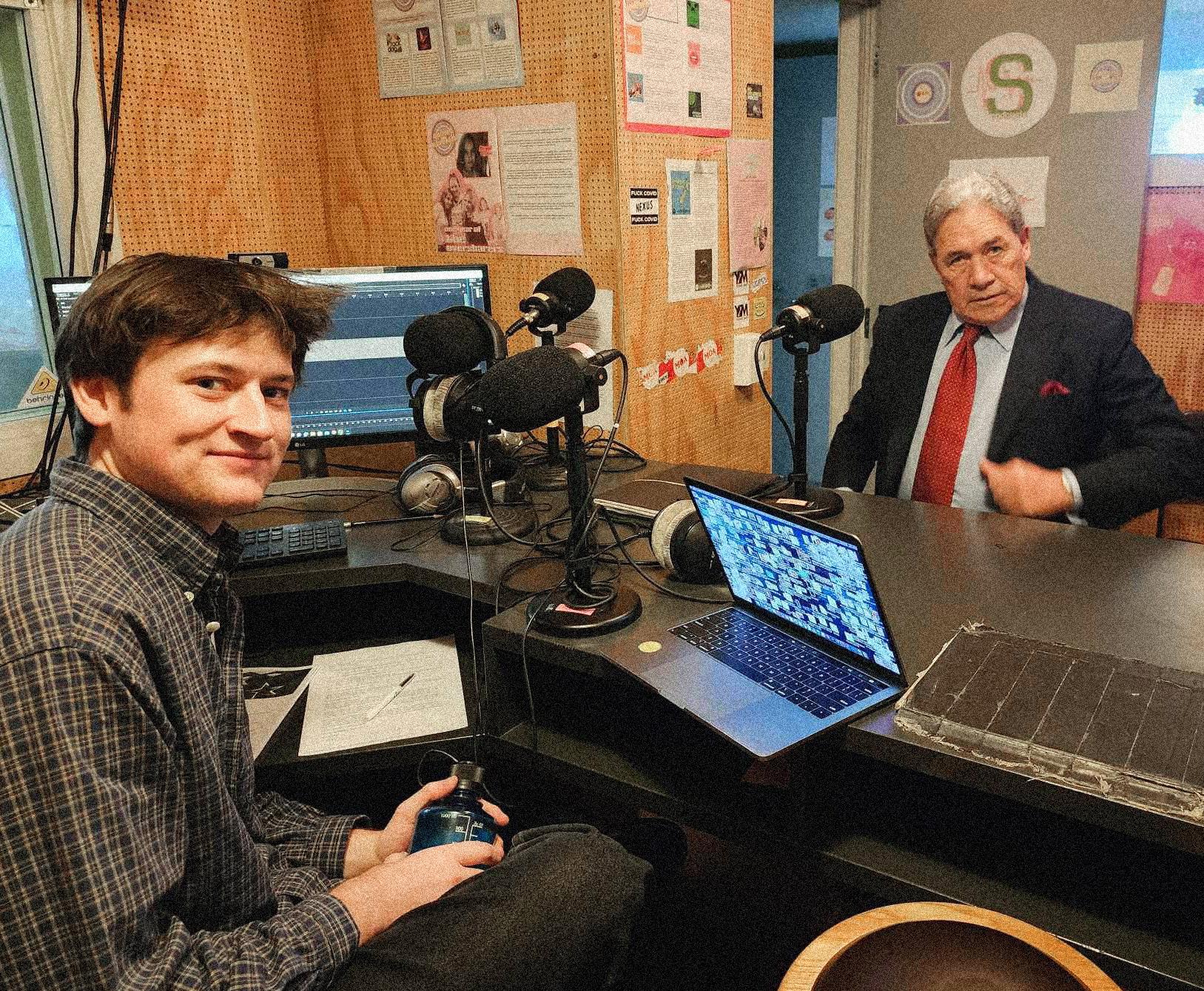
✦ ✦ ✦
With NZ First consistently hitting the 5% threshold in recent polls, it seems Winston Peters may be back in the game. Peters is confident he’ll make a return, and says that when he does, he’s committed to improving Aotearoa for students and young people. “I’ll do everything I can to provide the policies for students, for a future in the country that should be, as it once was, the greatest country on Earth.”
17 Te Taiao ✦ 02 ✦ NEWS ✦ KAWE PŪRONGO VOTE!
Listen to the full interview on Salient's Unedited Sessions podcast! Election
CANDIDATE KŌRERO
ACT WASN'T INTERESTED IN SPEAKING WITH SALIENT, SO INSTEAD, WE’VE SUMMARISED A NON-CONCLUSIVE LIST OF THE KEY ACT PARTY POLICIES YOU NEED TO KNOW.
The ACT Party will introduce :
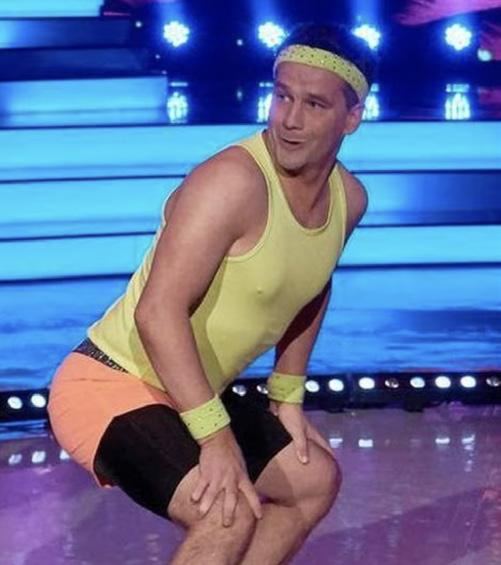
✦ A student education account, giving each child $250,000 for their life’s education costs.
✦ A two-rate income tax system; with a flat rate of 17.5% for those earning under $70,000 (currently, those earning under $14,000 pay 10.5%), and a 28% rate for those earning above it.
✦ Spending controls on: parents receiving sole parent support, recipients of unemployment benefits, and gang members who receive benefits.
✦ A new state-owned enterprise to manage state highways.
✦ A market based system to manage water pollution, and a pricing-based system for water allocation.
The ACT Party will abolish :
✦ Te Puni Kōkiri (Ministry for Māori Development)
✦ Ministry for Women
✦ Ministry for Pacific Peoples
✦ Human Rights Commission
✦ Ministry for Ethnic Communities
✦ Te Aka Whai Ora Māori Health Authority
✦ Fees free tertiary education
✦ Workforce development councils
✦ Fair pay agreements
✦ All tariffs
✦ The bright line test for tax on property sales
✦ Progressive home ownership scheme and the first home grant
✦ Let's Get Wellington Moving
✦ The Clean Car Discount and Clean Car Standard
✦ Development of Auckland light rail
✦ The Zero Carbon Act
✦ A public holiday (probably Matariki)
✦ Significant Natural Areas
✦ The ban on offshore oil and gas drilling
✦ ‘Co-governance’
✦ Increases to the minimum wage
✦ The Climate Change Commsission
ACT want to hold a referendum on :
A Principles of the Treaty Act, to override the Treaty of Waitangi with three principles:
1. All citizens of New Zealand have the same political rights and duties.
2. All political authority comes from the people by democratic means.
3. New Zealand is a multi-ethnic liberal democracy where discrimination based on ethnicity is illegal.
The ACT Party will oppose or ignore :
✦ Laws against hate speech
✦ The United Nations Declaration of the Rights of Indigenous Peoples (UNDRIP)
18 ✦ Election ACT VOTE! ELECTION ✦ CANDIDATE KŌRERO 23
IT’S BEDROOM, NOT BEDROOM POP
Keira Batten Coogan’s New EP Lips Are For Talking
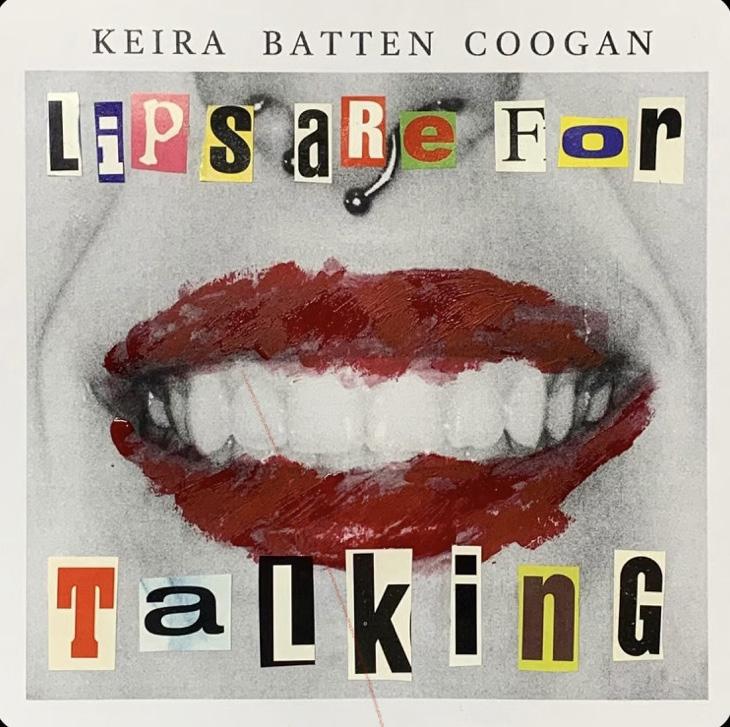
Words by Carys Chapman-Vari (she/her)
Afew weeks ago, my mate put on this cool, indie-sounding artist while we were getting ready to go out. After hearing the first few lines, I was obsessed.
Every friend I’ve shown Keira Batten Coogan’s music to has had the same reaction. Ready to seek out their next tour dates and learn about their background, I was shocked when my mate told me that Keira wasn’t a major underground super-star. Well not yet, anyway. Keira, instead, is an 18-yearold first-year Media Studies student here at VUW, and was kind enough to let me interview them for this piece.
Keira has been involved with music their whole life.
“My whole family is super musical. […] At family events, everyone puts on performances for each other and gets into little bands. [...] It's pretty cute.” Keira’s involvement in music is all thanks to their dad, who worked as a music teacher at the same intermediate Keira attended. This led to seven consecutive years of competing at Smokefree Rockquest, which Keira said never drained them, but only motivated them to be more creative every year. Recently, Keira was named in the top ten national solo artists for Rockquest, and received a Gifted and Talented Learners grant from the Ministry of Education to record and produce their new EP Lips Are For Talking
Keira isn’t writing to fit in a genre or be labelled, but for themselves and for “people who don’t have things made for them”. “My music [aims to be] a representation for queer people and neurodivergent people. Really, it’s for anyone who finds a piece of themselves in [one of my] lyrics, a bridge, or song.”
Keira describes their songwriting process as turning poetry into song lyrics, which leads to their incredibly personal sound. This blend between music and poetry is one their favourite parts of making music. “My favourite long-lasting song on the EP is ‘Waste A Pretty Girl’. The bridge that I'm really proud of is: ‘I've learnt that politeness is safety / Does that make you think I'm in love with you baby? ’”
Keira is a transparent artist and describes themselves in their Spotify bio as an artist who writes about “girlhood, queerness, and growing pains”. We struggled to find three words to describe their music, but we landed with “autobiographical, bedroom, and comfort”. “There's not a single major event in my life I don't have a song about. It’s very weird to put it out there and have it as entertainment for people, it’s like an archive of my life on display. But it’s really cool that other people can connect with that.”
So what’s up next for Keira? “Honestly, I don’t know just yet. After releasing the EP, recording and producing feels less scary. I'll probably just keep gigging. My sister’s band Cicada is who I usually perform with, but over the summer I'll probably be at Smash Palace in Gisborne.”
If you want to know more, listen to Lips Are For Talking and follow Keira on Spotify and Instagram.
Instagram: @_kkeira
Spotify and Apple Music: Keira Batten Coogan
19 Election ✦ 04 ✦ FEATURES ✦ AHUATANGA
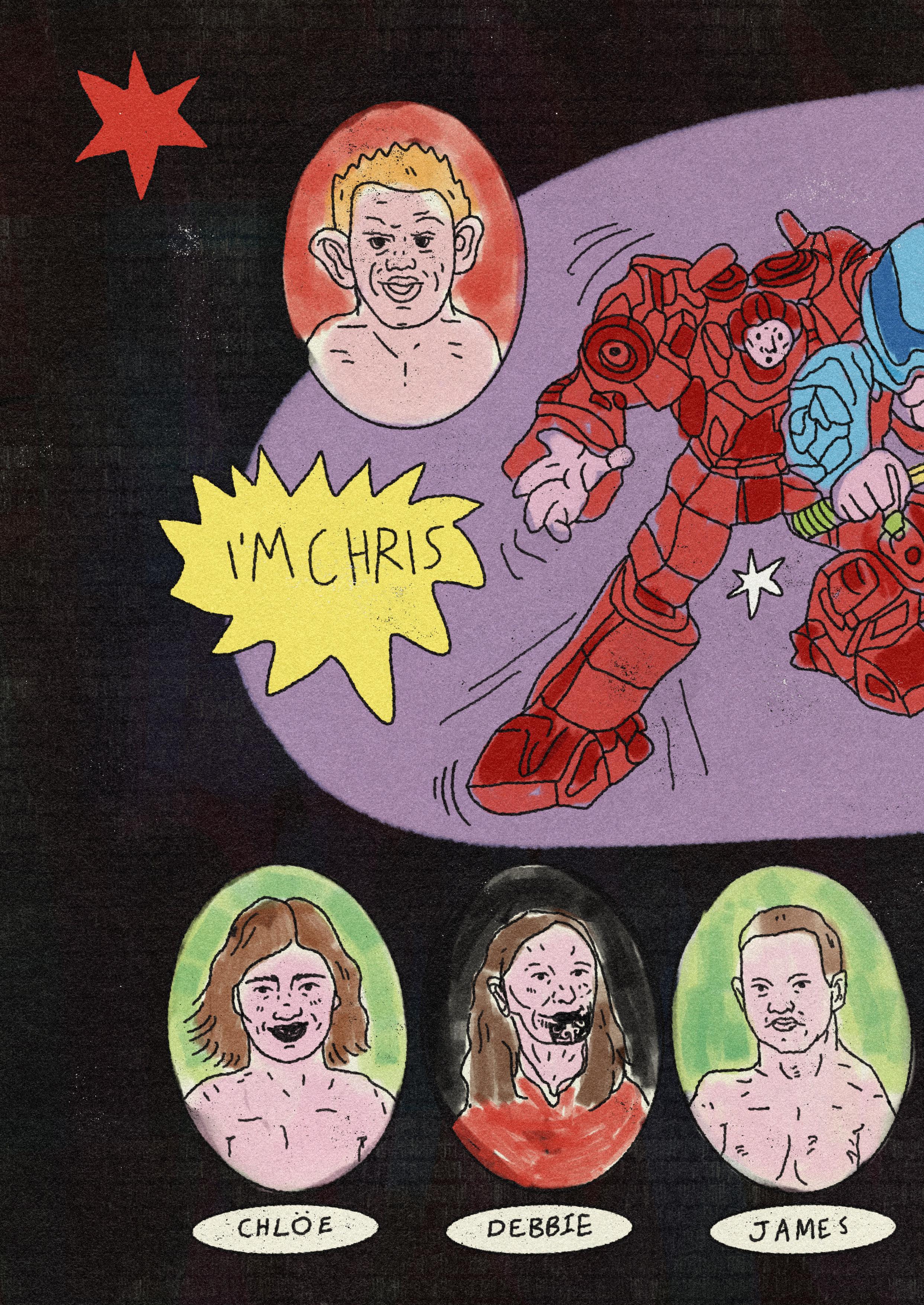

ELECTION POLL : THE RESULTS PARTY VOTE
In news just as shocking as the next Prime Minister of Aotearoa being named Chris, voters at Victoria University of Wellington have overwhelmingly indicated their support for a left-wing government this election.
According to results from Salient’s 2023 Election Poll*, 60.3% of students at VUW would give their party vote to the Greens, were an election to be held today. They’re followed by National, who received 13.5% of the vote, then Labour, who sit on 12.2%. Te Pāti Māori scrape into Parliament at 5.2%, just above the 5% threshold for Parliamentary representation. ACT, however, do not make it back in on their party vote numbers alone, only receiving 4.4%.
Translating this into seats in Parliament**, the Greens would receive an outright majority, with 75 MPs in their caucus—an 890% increase from the nine seats that they currently hold. This result is well above the 61 seats needed to form a majority, and means that the Greens would not require any coalition partners.
In the alternate reality where only these specific 226 people cast a vote, New Zealand would be thrust into a constitutional crisis. The Greens only have 31 people on their party list, so there would be 44 empty seats on the government benches. It is unclear how
they would make up for this shortfall, but it would probably involve a mousetrap in the middle of Cuba Street rigged up with some edibles or whatever. Labour and National would shrink significantly, with both parties warming the opposition benches. On these numbers, National receives 17 seats and Labour receives 15. Even if, by some miracle, Chris and Chris do manage to fall in love and form a coalition, these numbers have them significantly short of the amount needed to govern.
Te Pāti Māori gets back in with seven seats, their biggest ever result. ACT would also be back in with six MPs, but only if David Seymour manages to retain Epsom which, given its primarily wine mum and business boy demographic, is certainly a given.
*226 respondents, margin of error = + huge %. Results were collected between 1-22 September.
**Number of seats in Parliament assuming that all parties currently in the House win at least one electorate seat.
 Disclaimer: This poll is NOT in any way statistically accurate, take it with a grain (or perhaps a cup) of salt.
Words by Ethan Rogacion (he/him)
Disclaimer: This poll is NOT in any way statistically accurate, take it with a grain (or perhaps a cup) of salt.
Words by Ethan Rogacion (he/him)
04 ✦ FEATURES ✦ AHUATANGA 22 ✦ Election
ELECTORATES
Moving to Pōneke’s general electorates, based on these numbers, Salient projects a gigantic Green wave across Te Upoko o Te Ika. According to our poll, the Green Party’s candidates in Wellington Central, Rongotai, and Ōhāriu come out on top, each with a healthy lead ahead of their competition. In Te Tai Tonga, Te Pāti Māori’s Tākuta Ferris leads Labour incumbent Rino Tirikatene with a sizeable margin.
Wellington Central
1. Tamatha Paul (GRN) 62.6%
2. Ibrahim Omer (LAB) 19%
3. Scott Sheeran (NAT) 14.9%
4. Natalia Albert (TOP) 2.3%
5. Taylor Arneil (NZF) 1.1%
Ōhāriu
1. Stephanie Rodgers (GRN) 49.1%
2. Nicola Willis (NAT) 23.6%
3. Greg O'Connor (LAB) 12.7%
4. Jessica Hammond (TOP) 9.1%
5. Patrick Lim (VIS) 5.5%
Rongotai
1. Julie Anne Genter (GRN) 60.3%
2. Karunā Muthu (NAT) 13.8%
3. Fleur Fitzsimmons (LAB) 12.1%
4. Bruce Welsh (CON) 6.9%
5. Nicole McKee (ACT) 5.2%
Te Tai Tonga
1. Takutā Ferris (TPM) 69.6%

2. Rino Tirikatene (LAB) 30.4%
PREFERRED P M

The Green sweep continues in the statistics for preferred Prime Minister. Our poll indicates that most VUW students (30.2%) want to see everybody’s favourite “woke lesbo”, Green MP Chlöe Swarbrick, in the top job. Current Prime Minister and sausage roll enjoyer Chris Hipkins follows her, with 20% of respondents giving Chippy their support. Green Party Co-Leader Marama Davidson comes third on 14%, closely followed by National Party Leader Christopher Luxon on 12.3%.

Also registering on our results—albeit marginally—was Salient’s own Paddy Gower with 4.7%. Shout-out to the three people who said that Labour’s Megan Woods was their preferred PM.
1. Chlöe Swarbrick (GRN) 30.2%
2. Chris Hipkins (LAB) 20%
3. Marama Davidson (GRN) 14%
4. Christopher Luxon (NAT) 12.3%
5. James Shaw (GRN) 10.2%
6. Paddy Gower (guy from TV) 4.7%
7. Megan Woods (LAB) 1.3%
In any case, though, this “poll”—as with all polls— is… just a poll: a snapshot of the country at a particular time. If you want to see real, actual outcomes, the only poll that actually counts is on 14 October, so get out there and vote!
04 ✦ FEATURES ✦ AHUATANGA 23 Election ✦
TIKTOK ON THE CLOCK, BUT THE PARTIES DON’T STOP A Ranking of New Zealand’s Political TikTok Pages
 Words by Sarah Bakewell (she/her)
Words by Sarah Bakewell (she/her)
Ever been glued to your TikTok For You page for hours on end instead of writing that overdue essay? Then perhaps you’ve seen Christopher Luxon or Chlöe Swarbrick pop up a couple of times. As we near the election, New Zealand’s political parties are ramping up their social media campaigns and branching into TikTok. But how good are their attempts to connect with young voters? To find out, I’ve scrolled through the politicians’ TikTok pages so you don’t have to.
National’s TikTok content started out as trend-based to lure people in, and now has become ‘politics in action’ demonstrations with more traditional campaigning. Solid strategy.
A big chunk of their content is pure flak towards Labour Party—a campaign strategy in which a party attempts to discredit the opposition. There’re many clips of Nicola Willis discussing politics in a FaceTime-like fashion, which feels like chatting with a mate. This creates a false sense of personal connection, constructing a para-social relationship between us and Nicola and making it easier for voters to feel ‘seen’ by politicians.
7/10. Could do with less Labour flak, but I’m impressed at how effectively they’ve integrated relatable trends into their content.
LABOUR
Labour only created their page at the end of August. All that’s been posted is some MP introductions, a couple Parliament clips, and some official press releases. They’re not utilising the algorithm to its full potential. They’ve recently branched out into fronting Hipkins on their landmark policies, and have started taking aim at National’s tax plan.

4/10. The basic (and stiff) foundations have been laid, and they lose points for such a late start. Excited to see what’s to come, hopefully it's a bit more creative.
NEW CONSERVATIVE
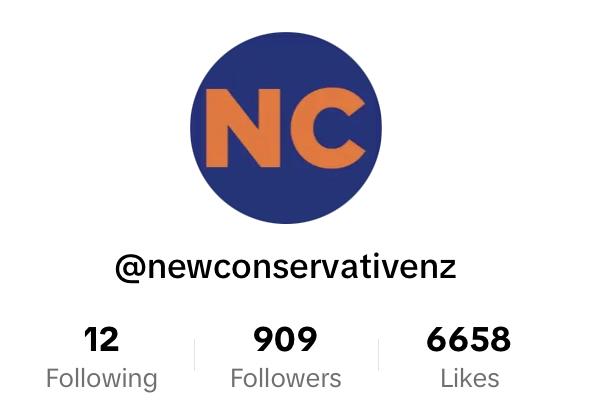
Very unexpected. Their TikToks don’t use any trending audios, and are mainly just Ted Johnston and Helen Houghton stating divisive opinions to the camera. Their page is a perfect example of what not to do with social media campaigns. There is absolutely nothing for TikTok’s algorithm to pick up on from this, but it brings like-minded people together, giving power and potential for hate groups to bring new people into the fold. After viewing this page, similar New Conservative content started popping up on my For You page. Spooky implications.
1/10. Enough said.
24 ✦ Election
NATIONAL
04 ✦ FEATURES ✦ AHUATANGA
TE PĀTI M ĀORI
An older Te Pāti Māori account utilised trends and created a fun environment with Debbie NgarewaPacker and Rawiri Waititi, but the password was lost—their new page has significantly less followers. The dances and trends were executed perfectly, without coming across as cringe, alongside videos on issues relating to Covid-19.
The new page has a more polished and professional feel, with well-edited policy discussions, aesthetic imagery, and music overlay. Unlike the other parties’ pages, Te Pāti Māori has a larger amount of interviews with supporters—namely from a younger demographic. This community engagement gives voice to voters and adds relatability for the younger demographic on TikTok.
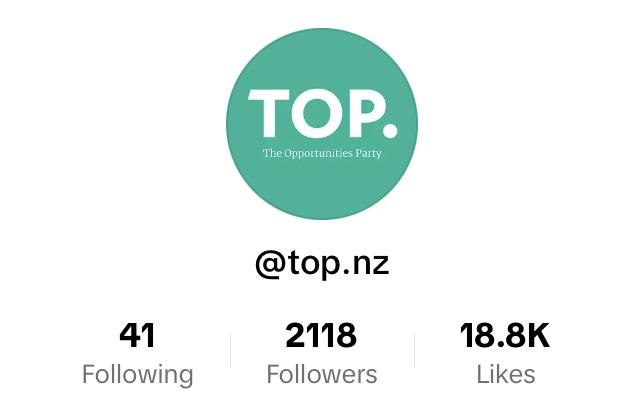
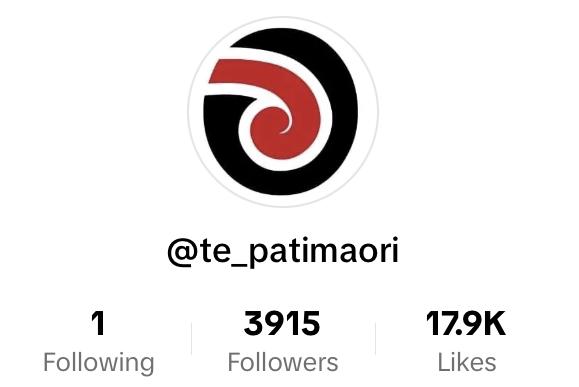
8/10. A shame they lost the password for the old account, it was flourishing. If they keep this up though I’m sure they’ll regain their followers in no time!
TOP
This no-nonsense page is chock-full of policy discussions, professional editing, parasocial facetimes, and Raf Manji smooth talking on the news. Very polished and informative. The few scattered memes made me chuckle.
6/10. As a newer party, many people aren’t aware of TOP’s policies (or that they even exist) so the appeal of policy discussions is apparent. They don’t take advantage of TikTok’s algorithm to its fullest potential though. Utilising meme culture will boost youth engagement!
GREENS
This is how you run a social media campaign! You get para-social aspects from one-on-one discussions from Chlöe Swarbrick, just the right amount of flak without it being overbearing, good displays of politics in action through Parliament clips and informative policy discussions, and top-tier memes. Bright imagery, text, and fun editing of some TikToks has created an enjoyable user experience too.
Ka pai Green Party!
10/10. The Green Party’s page is just *chefs kiss*. Very entertaining, very informative, very passionate about connecting with youth voters. They know their demographic exceptionally well.
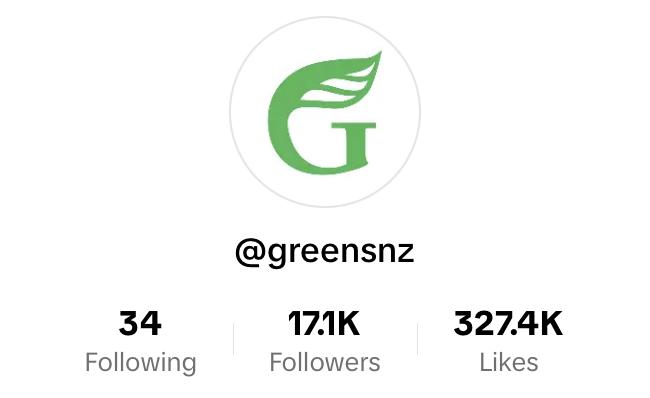
ACT
ACT has racked up a considerable follower count, purely from clips of David Seymour, mixing FaceTime like conversations with formal camera presentation. The other nine MPs? Non-existent. There’s a couple of memes, but none that take advantage of the TikTok algorithm.

4/10. Lots of Parliament clips and parasocial chats, but the lack of trends gives the account a disconnected feel. It’s like David Seymour’s personal talk show.
NOT-SO HONOURABLE MENTION: SHANE JONES
While NZ First doesn’t have a TikTok, Shane Jones burst onto the platform with a viral video parodying ‘Don’t Stop Believing’, recounting his achievements for Northland while in government. He’s followed it up with interview clips, some of which are from conspiracy theory website The Platform.
Politicians are finally starting to recognise the potential that a good social media campaign holds: connecting with youth voters has never been more convenient. Whilst they can be entertaining, taking a step back and reflecting on the ways we interact with political actors through social media is an important task. Every post, interaction, and meme is cleverly sculpted by an in-depth public relations team—hats off to the professionals running these accounts.
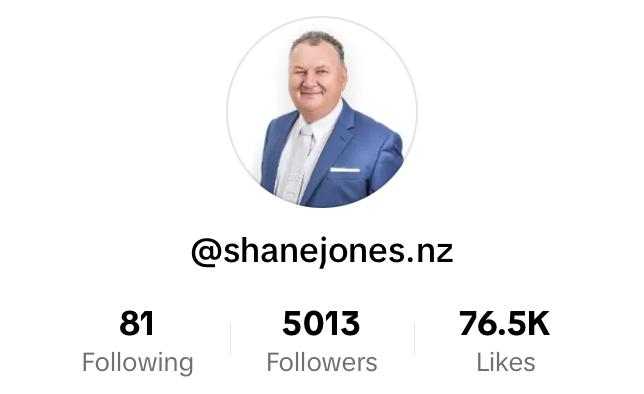
25 Election ✦ 04 ✦ FEATURES ✦ AHUATANGA
Predicting the Election with Aotearoa’s Leading Psychic
As the election draws nearer, political commentators start to wet themselves with anticipation, spouting hot takes on potential electoral outcomes—but all too often, their commentary is unfruitful.
I wanted to speak to the only person with the ability to know for sure what’s in store for election day, so I travelled to Christchurch to sit down with psychic medium, Ron L. Griffiths.
Ron greets me from his well-manicured garden, wearing a figure-hugging floral waistcoat and chunky silver rings. Leading me into his mystical studio, he prepares for the reading by lighting candles and inviting spirits into the room. As we take a seat, Ron reveals that this isn't the first time he's predicted an election.
It was 2016, in Queenstown, where he claims he successfully predicted Jacinda Ardern’s rise to power. Ron says he saw Ardern “walking along on holiday” near Lake Wakatipu, and asked if he could read her palm. “I said, 'you're going to be the next Prime Minister.’”
It was a big call, but Ron says it's proof of his abilities. “I stake my reputation on that election alone”.
As soft spiritual music plays through a bluetooth speaker, he pulls out a velvet sack of stones, known in the psychic world as runes.
The first rune pulled from his sack was blue, which Ron said represents the National Party. The rune was engraved with two people kissing, illustrating the party’s “togetherness” and unity. “I do think that National have got it together in terms of supporting each other.”
The second rune was pink, “slightly off, but I'm gonna say red”. This was Labour’s rune, and painted a grim picture for the party. “The runes are telling me that, basically, Labour just can't keep it together,” Ron stated.
The third rune was black and grey, which Ron believed represented Winston Peters as a storm cloud looming over the election. “He has been in a grey area for a while, [... but] Winston comes through and chooses National because they are just more together and Labour are at a crossroads.”
Ron’s runes offered a brutal verdict for the left, predicting a National and ACT government will reign victorious come 14 October.
“It pains me a little bit, but there you go,” he said. “Chris Hipkins will lose the election.”
Ron went silent for a second, before dropping his next bombshell. “I get a feeling that Ginny Andersen, I think she's gonna be the next leader of the Labour Party.”
Ron says the Hutt South MP will take over Labour’s leadership after Chris Hipkins’ resignation following the election loss. “She’ll give Chris Luxon a run for his money next election.”
Ron pulled out his “primo deck” of tarot cards, instructing me to ask the deck a question. I ask if there will be any shocking scandals this election, and according to Ron’s cards, we’re in for a dirty campaign.

I pull the Queen of Cups, which depicts a woman wearing green and red dipping her toes in the water. He postulated that this represents a woman from the left of politics, in trouble for her overconfident nature. “She's about to fall into the water,” he said. “Her head's in the clouds.”
As for the minor parties, Ron said ACT’s “time has come, I think [David Seymour] is gonna do okay, probably Deputy Prime Minister.” He pulled the ten of pentacles, perhaps indicating that they would get 10% of the vote.
Ron pulled the “rebirth” card for Te Pāti Māori, which depicts a child with a large rabbit. “Hunt with the hounds, run with the hare,” he said, meaning the party will “just go with whoever is going to be beneficial at the time”.
And the Greens? They'll do well, according to Ron, “because of the climate change and that type of thing”.
As the reading wrapped up, I asked Ron to shed some light on what percentage each party would get. Ron declined, saying he’s “never been a number cruncher”.
Ron’s prophecy may not provide precise percentages for election night, but his political projections pose tantalising questions. Will Labour overcome their runic troubles? Will Winston Peters return? And what scandal awaits the overconfident lady of the left?
26 ✦ Election
04 ✦ FEATURES ✦ AHUATANGA
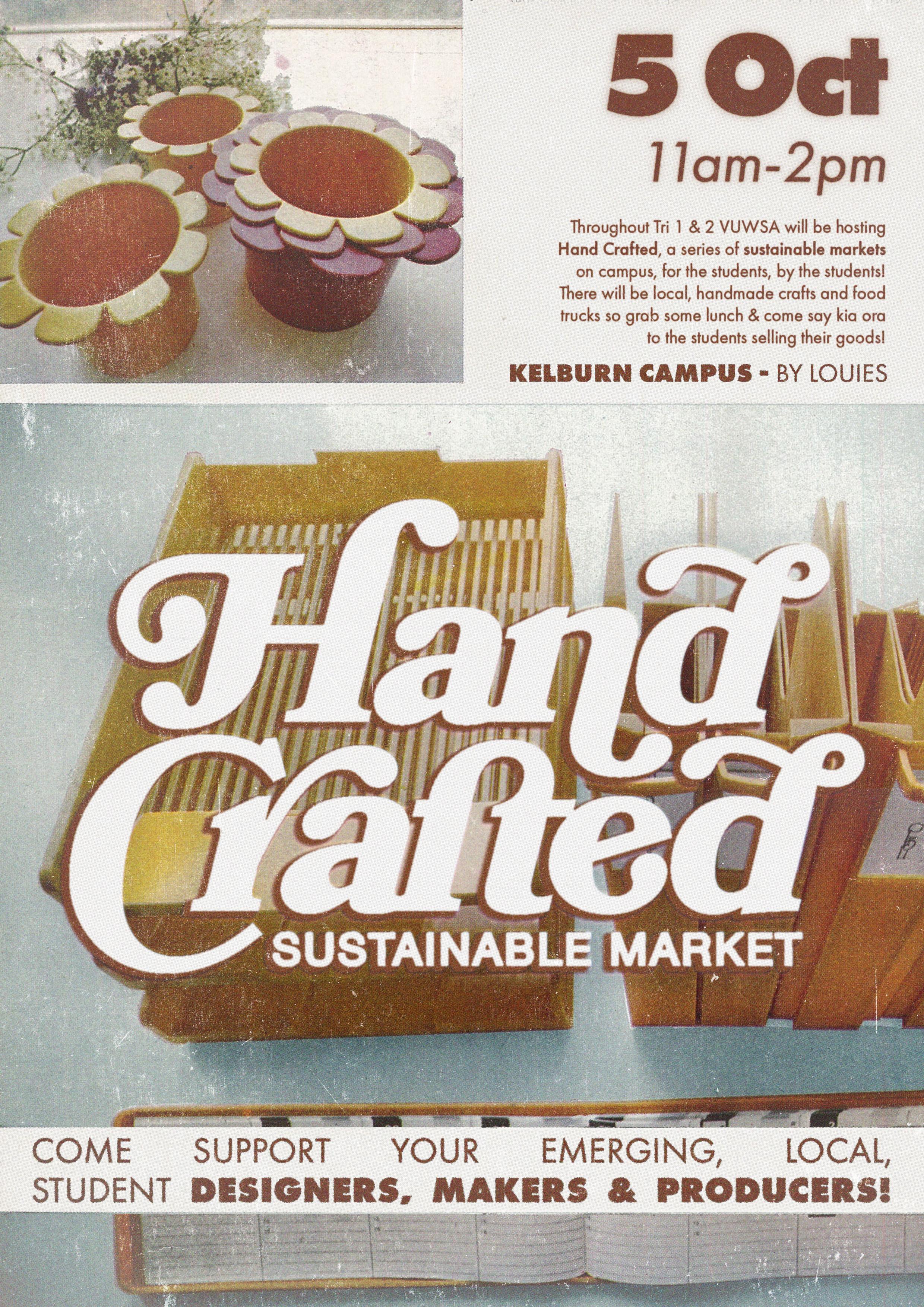
ODCASTS

GOVERNMENTALITY Bringing Election Chaos Right to Your Door
Words by Alex Marinkovich-Josey (he/him)
At the beginning of this year, two students set out to cover as much of this year’s election as possible.
Hollie and Xandi are known for their in depth and lengthy political reckons, and they wanted to set themselves the task of bringing those discussions to as many curious listeners as possible. With a mission to make the often confounding world of politics accessible, Governmentality has brought a new voice into the realm of Aotearoa’s political coverage.
Governmentality seeks to share as much of the political world as possible, ranging from policy breakdowns, interviews with candidates, or just ripping apart the nonsense numbers that underpin significant party policies.
Here’s a look at some of the breakdowns and interviews that Governmentality released during the lead-up to the election!
Balancing Ballots
How does voting work in Aotearoa? In this episode, expect a deep dive into our electoral systems and what the politicians actually get up to in the Beehive. If you’re still trying to figure out what this whole election thing is about, this is the episode for you.

First to the Finish Line
NZ First’s Wellington Central Candidate, Taylor Arneil, joins the show to talk about their policy heading into the election. They discuss universal student allowances, stopping the ‘brain drain’, and why a vote for NZ First might help avoid a disastrous government.
The Education Conversation
Hollie and Xandi tackle the education sector. What's wrong with the current system, and what do we do about it? Expect a breakdown of each party's policy and track record when it comes to supporting educators.
Budget Bash: ACT

In this episode, Hollie and Xandi break down ACT’s proposed ‘alternative budget’, and investigate their priorities. What cuts and savings are being proposed, and what is their vision for Aotearoa as a whole?
Cents and Sensibility
National’s Tax policy seems to be the talk of the town, but how does it stack up to economic scrutiny? Hollie and Xandi break down the good, the bad, and the as of yet unknown (like their MIA costings!).
Scan to listen to Governmentality on Spotify!

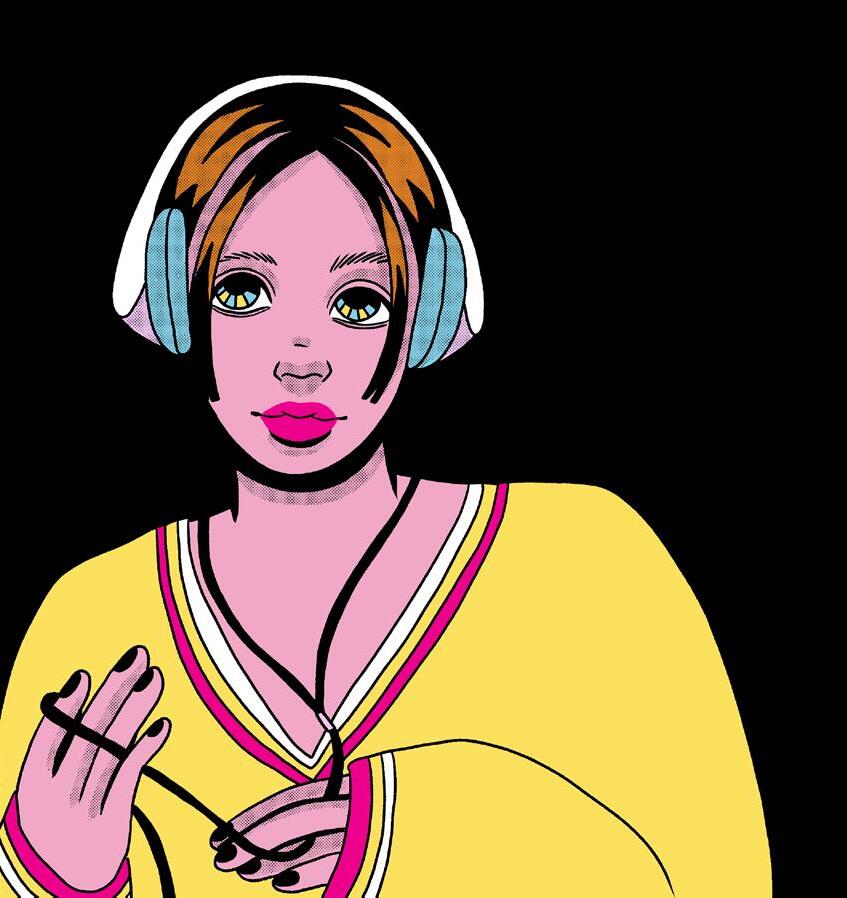
05 ✦ PODCASTS ✦ KŌNAE IPURANGI
MĀORI



Growing up not seeing Māori amongst those who have the authority of governance over this land somehow made me doubt our people. But that thought was purely from what I observed; our lack of representation was never our fault to start with. It was the result of years of oppression and having most of our rights taken away from us. Our people are great and we are capable of many things. We as individuals have got to look after each other as a whole. We’ve come so far, but for an even greater future, we need to take action.
The election is coming up very soon. Do your research and go down the right path e te whānau. Remember that you’re doing this not only for yourself, but for other people. ‘Vote for Māori’ will always be the most important whakapepeha to me as a rangatahi Māori in the 21st century.
Voting for Māori is crucial for several reasons. Firstly, it ensures that Māori voices are heard and represented in the decision-making process. By participating in elections, Māori individuals can elect representatives who understand our unique needs and concerns, advocating for policies that address issues such as land rights, cultural preservation, and the kaupapa that we carry.
Secondly, voting empowers Māori communities to shape the future for our tamariki. It allows us to have a say in matters such as education, healthcare, and economic development, which directly impact our wellbeing and prosperity. By actively participating
in the democratic process, Māori can work towards creating a more inclusive society that recognizes and respects our cultural aspects. Participating in democracy and working towards a better future is mana enhancing.
Thirdly, voting for Māori strengthens the collective identity and unity of rangatahi whenua. It reinforces the notion that our voices matter and that we have the power to effect change. Through voting, Māori individuals can come together as a community, mobilise their resources, and work towards common goals that benefit the people as a whole.
Furthermore, voting for Māori promotes social justice and equality. It helps to address historical injustices and systemic disparities that have marginalised Māori communities for generations. We can contribute to upholding Te Tiriti by electing representatives who prioritise equity, so that Māori can strive towards a society where everyone has equal opportunities and access to resources.
Lastly, I just wanna say that voting for Māori is essential for ensuring representation, empowerment, selfdetermination, and social justice. It allows our people as individuals to actively participate in shaping our own future. By exercising our right to vote, Māori can contribute to a more inclusive and equitable society that respects and values our unique heritage, embracing and following many tikanga that have been passed down through generations. Hei āwhina i ō tātou iwi, me whakapau kaha koe i tōu wāhi!
29 Election ✦
29 Election ✦ 06 ✦ COLUMNS ✦ TIWAE
Words by Matty Mako (he/him; Ngāti Toa)
POLICY SCORECARDS A Salient and Policy.nz Collab
To help you decide who to vote for, Salient has summarised the key party policies in four areas: student support, housing, income and employment, and transport. You can give each party a score out of ten for each area, depending on how well you think they do. We’ve chosen these because they are most important to the student audience—head to Policy.nz for more background on each area and to see policies in other areas.
Aotearoa uses MMP (mixed member proportional voting) to determine each party’s seats in Parliament. You get two votes: one for a party, and one for an electorate representative. Use this policy scorecard for the party vote to see which party’s policies
align most closely with your values, and check out our interviews with the Wellington Central and Rongotai candidates in other issues of Salient to help determine your electorate vote!
Nearly 40% of the 18-24 age group is unenrolled—it’s more important than ever that you and your mates get out there and vote, and do your research to know which party represents you best. Don’t leave it all to the boomers.
Voting is open from 2-14 October, and you don’t need to be enrolled beforehand. Just show up to any voting place to vote on the spot! Lucky for us, we can vote at the Hub on Kelburn Campus on weekdays from 10 a.m.-4 p.m. from 2-13 October.
STUDENT SUPPORT
1. Expand healthcare apprenticeship scheme
2. Increase the number of dental places at university by 50%
3. Improve study and employment options for Māori health workers
1. Create bonding scheme for nurses and midwives working in NZ
2. Establish a third medical school
3. Compulsory exit exam for primary and intermediate teaching graduates
1. Introduce an income guarantee for all students
2. Expand free apprenticeship programmes and feesfree programmes
3. Reform student accommodation standards
1 . Abolish the Fees Free tertiary education programme
2 . Provide every child with $250,000 for education
/ 10
1. Review funding model for Crown Research Institutes
1. Introduce a national civic service programme
2. Increase funding for post-doctoral research
3. Review tertiary education system
1 . Introduce a universal student allowance
2 . Introduce free public transport for all students
3 . Create more pathways for school leavers
30 ✦ Election
LABOUR
NATIONAL
GREENS
ACT
TOP
TE PĀTI
M Ā ORI
/ 10 / 10 / 10 / 10 / 10 / 10
NZ FIRST
07 ✦ POLICY SCORECARDS ✦
1. Oppose a wealth or capital gains tax
2. Introduce a papakainga planning standard
3. Fund critical infrastructure needed for housing development
1. Revert the bright-line test for tax on property sales to 2 years
2. Allow interest deductibility on loans for rental properties
3. Pay councils for consenting additional houses
1. Limit rent increases to 3% or less per year
2. Introduce a landlord register
3. Build 35,000 new public houses over five years
/ 10 / 10 / 10 / 10 / 10 / 10
2 . Replace the Building Act with compulsory building insurance
1. Introduce a tax on urban residential land
2. Require a 100% deposit for properties purchased for investment purposes
3. Create a $3 billion fund for social housing
10
WOOD
1 . Tax undeveloped land
WHAT'S IMPORTANT TO YOU?
it
31 Election ✦ LABOUR
NATIONAL
GREENS
ACT TOP
TE PĀTI M Ā ORI
2 . Introduce tax on vacant houses NZ FIRST /
1 . Abolish the bright line test for tax on property sales
3 . Abolish the Progressive Home Ownership Scheme and the First Home Grant
07 ✦ POLICY SCORECARDS ✦
HOUSING Write
here!
07 ✦ POLICY SCORECARDS ✦
COST OF LIVING INCOMES AND EMPLOYMENT
1. Remove GST from fruit and vegetables
2. Provide two weeks of paid partner's leave
3. Lift the Working for Families abatement threshold to $50,000
1. Introduce a childcare tax rebate for families earning less than $180,000 per year
2. Adjust income tax brackets for inflation
3. Abolish fair pay agreements
1. Introduce a weekly income guarantee
2. Make the first $10,000 of income tax free
3. Introduce a wealth tax
/ 10 / 10 / 10 / 10 / 10 / 10
1 . Introduce a two-rate income tax system
2 . Increase the retirement age to 67
3 . Abolish fair pay agreements
/ 10
1. Compensate people who lost jobs due to Covid-19 vaccination requirements
2. Adjust tax income brackets to match inflation
3. Remove GST from fresh food
1. Make the first $15,000 of income tax free
2. Provide a universal basic income
3. Reduce tax on income up to $80,000
1 . Make the first $30,000 of income tax free
2 . Introduce a wealth tax
WHAT'S IMPORTANT TO YOU?
32 ✦ Election LABOUR
NATIONAL
GREENS
ACT TOP
TE PĀTI M Ā ORI
3 . Double baseline benefit levels NZ FIRST
Write it here!
TRANSPORT & INFRASTRUCTURE
1. Retain current public transport discounts
2. Build a rapid transit system through west and northwest Auckland
3. Build a mass rapid transit system in Wellington
1 . 2 .
Replace fuel taxes with user-pays road pricing
End the Let's Get Wellington Moving programme
Stop the development of light rail in Auckland
Stop the development of light rail in Auckland
Build a four-lane highway alternative for the Brynderwyns in Northland
Build a four-lane motorway from Whāngarei to Marsden
1. End the Let’s Get Wellington Moving programme
2. Build a second Mount Victoria tunnel in Wellington
3. Remove public transport discounts
/ 10 / 10 / 10 / 10 / 10 / 10
1. Develop a nationwide rapid rail system for passengers and freight
2. Build light rail in Auckland, Wellington and Christchurch
3. Prioritise cycle and walking infrastructure over roads
1. Provide free public transport to under 30s
2. Provide a $1500 credit for bikes and e-scooters to under 30s
3. Introduce a card and app for citizens and residents up to the age of 30
1 . Introduce free public transport for all students
2 . Develop a national Māori strategy for renewable energy and clean
3 . Maintain target of 100% renewable energy by 2030
WHAT'S IMPORTANT TO YOU?
Write it here!
33 Election ✦
LABOUR
NATIONAL
GREENS
ACT TOP
TE
M Ā
PĀTI
ORI
FIRST
NZ
/ 10
3 . 1. 2. 3. 07 ✦ POLICY SCORECARDS ✦
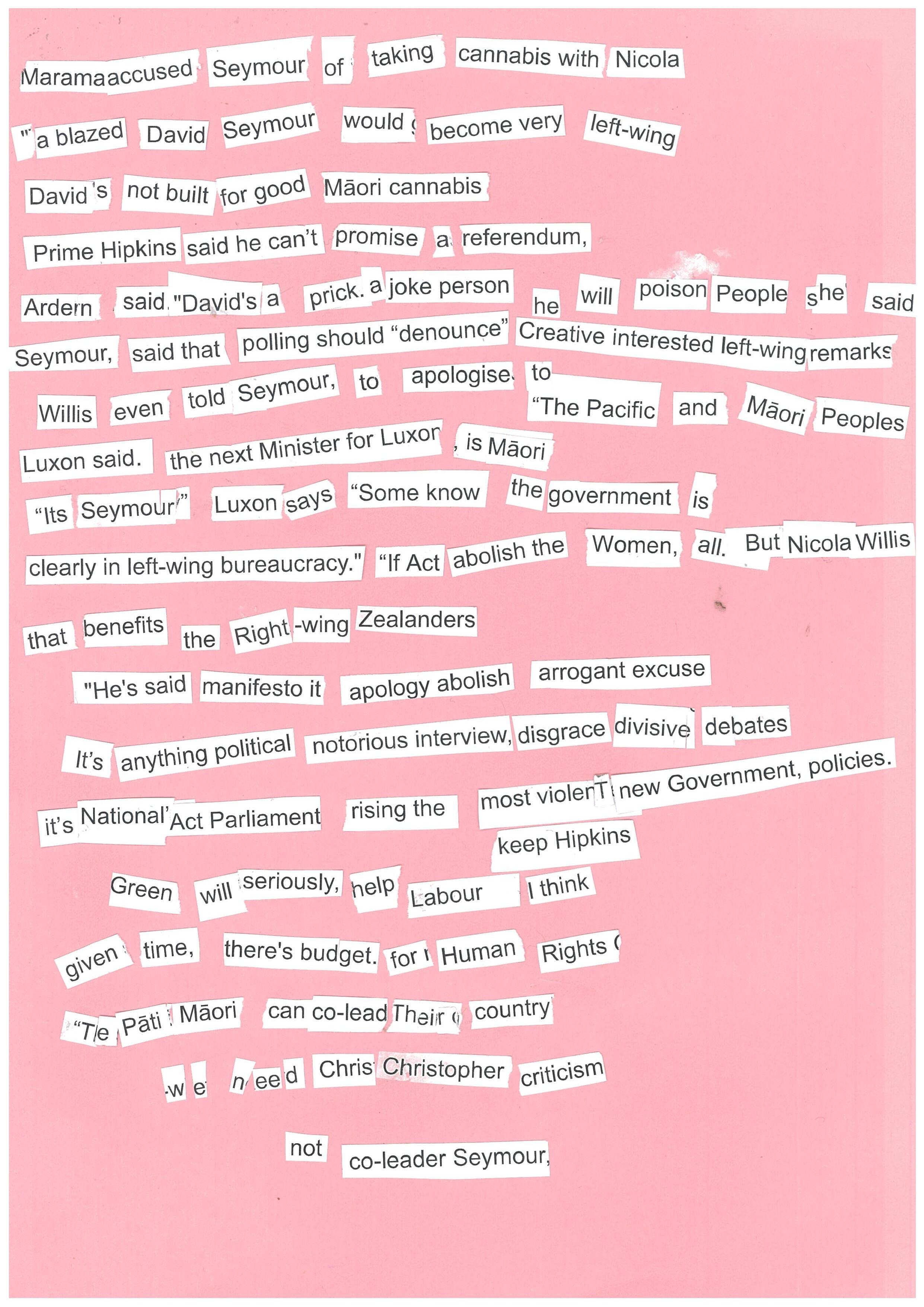
34 ✦ Election 10 ✦ CREATIVE SPACE ✦ AUHUA
by the orange guy (please/vote/now/or/else) 08 ✦ CREATIVE SPACE ✦ AUHUA
arrogant excuse words
Your significant other is pulling you away from responsibility. I’m not saying that they’re bad for you, but pulling a sickie so you can sleep in with them isn’t the best idea when bills need paying. Not in this cost of living crisis, sir.
Life’s expensive right now. For real. Fuck it, save your money. Take toilet paper from your workplace, sanitary products from the uni bathrooms, and if some groceries end up in your tote instead of the checkout, I’m not looking ;)
A couple weeks ago, you were scrambling to find a flat, and now you’re scrambling to find a summer job. Well, I salute you soldiers for going through the whole CV-writing and application ordeal. I’ll ask the stars to give you minimal rejections.
I’m not sure if I should even bother writing for you this week. You probably didn’t bother picking up your copy of Salient, or even step foot on campus. There are two things you must do to be a good citizen: vote and read your horoscope.

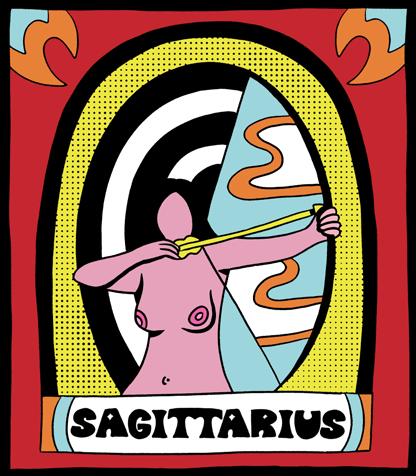




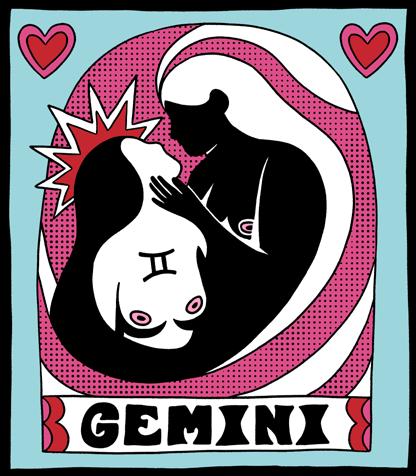
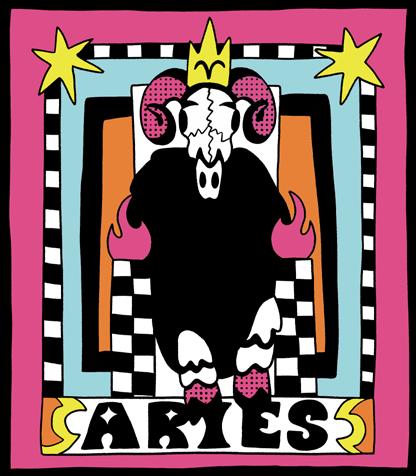
You have a strong sense of rebellion, and I respect it. TP the campus like a teenager played by a 30-year-old in a high school movie made in the 80s. (Just make sure Taurus helps with the toilet paper. Don’t pay for anything in this economy.)
One day you’ll stop stacking so many responsibilities on your plate. You know that humans can’t actually multitask, right? You’re just switching between two things very quickly, and being less productive while you do so. To do more, do less.
Fuck, someone’s really pissed you off. Omg, tea. Who is it? What did they do? Are you mad at your flatmate for drinking all your oat milk? Or your tutor for giving you a B-? Are you angry about the current NZ political climate in general?
Focus on your mental health, bro. Watch the lecture recordings if you have to. It’s not ideal at the moment, but don’t feel guilty. Focus on finishing the year. It’ll get better. Summer’s just around the corner.
Did you get, like, eight piercings in one day? No wonder they’re not healing. No—tell me you didn’t do them yourself? I’m all for a cheeky needle and apple for the lobe, but for the love of God, don’t pierce cartilage yourself!
Capricorn feeling unmotivated? How uncharacteristic. Though more characteristically, you're putting low effort in and still getting good grades, like only you could.

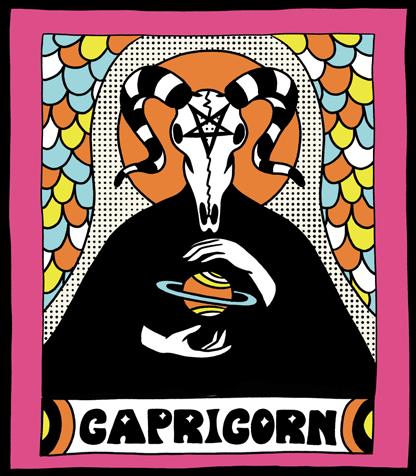
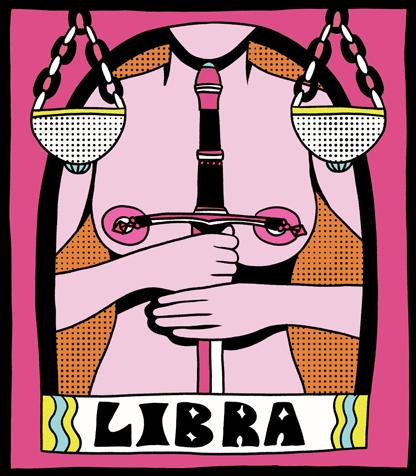
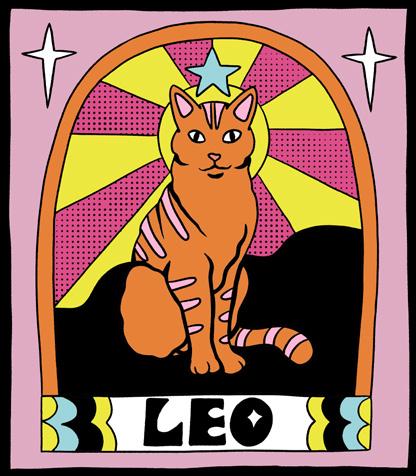
You remind me of someone who still holds onto that whole early-mid 2010s ‘I hate comic-sans and that’s my whole personality’ thing. I’m not saying that you’re literally doing that, but that’s the energy you’re giving.

Bless you, Pisces, but I’m just not sure they’re that into you. I think when they asked you to copy notes for a lecture they missed, that’s all they wanted from you. Oh well, your blissful ignorance is quite endearing actually.
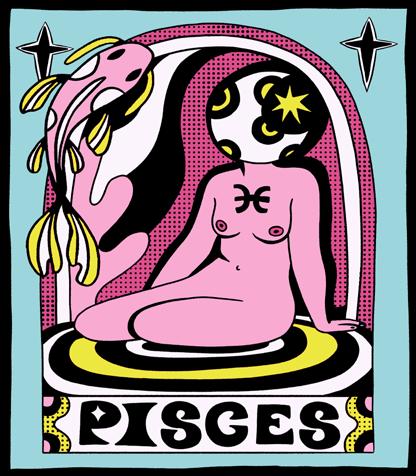
35 Election ✦
35 Cupid ✦ Health & DisabilityInfluence & Media Art
brain boozled
WORD OF THE WEEK: ELECTION,VOTE
NZ Sign Language
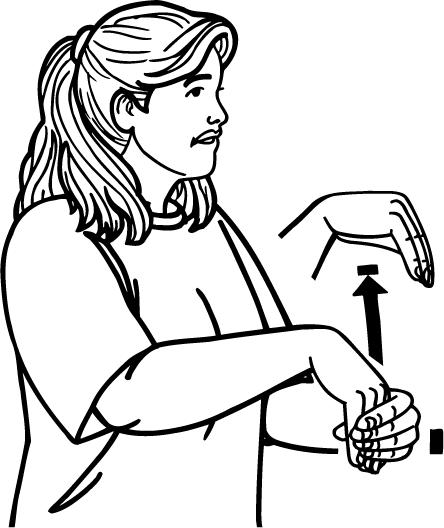
kōwhiringa, pōti
SALIENT SURGEON

CONFESSIONS
In first year, I was a class rep for a course and during a review meeting just like complained about a guest speaker and aired out all of my classmates complaints. And I was like oh I can find their name and she was like...that won’t be necessary...turns out she was in the room!
-Anon

36 ✦ Election
10 ✦ PUZZLES ✦ PANGA
GENERAL ELECTION
1. Brunch cocktail (6)
4. Like an election debate, or online message board (5)
8. Friend or buddy (3)
9. Go public with (3)
10. ___ and downs (3)
11. Plant firmly (5)
12. Popular condiment (5)
13. Uncooked or unprocessed (3)
14. Te Pātaka Toi Adam ___ Gallery (3)
16. Iron _____ (20th century political metaphor for a European divide) (7)
17. Alpine cousin of the kākā (3)
18. Notable meeting between National and Act labelled "The ___ Tape Scandal" in 2011 (3)
21. Like ������ or ��(5)
23. 44th US president (5)
24. Woman with a habit? (3)
25. Zero on the soccer pitch (3)
26. LCampaign billboards, for example (3)
27. Air BnB alternative (5)
28. Assignments (6)
DOWN
1. With 2 & 8 down, NZ's voting system (5, 6, 12)
2. See 1 down.
3. Luxon's group of potential ministers (6, 7)
4. Polling ups-and-downs (12)
5. Meddlers in foreign elections, like Prigozhin's 'Internet Research Agency' (7, 6)
6. What a waiter might give you (4)
7. Name of any left-wing candidate for Wellington Central (7)
8. See 1 down.

15. Bright colour found in printer cartridges, or the ACT party logo (7)
19. Home of Sarah Palin, who may have seen part of 5-down from her house? (6)
20. Olympic host city in 1900, 1924, and 2024 (5)
22. Swearing in (4)
37 Election ✦
Find our crossword answers on our website or the Salient Linktree. 10 ✦ PUZZLES ✦ PANGA
ACROSS
Study Urban and Regional Planning

CHANGE YOUR CAREER PATH
Are you passionate about creating environmentally sustainable cities? Shape the future with the Master of Urban and Regional Planning. Discover a world of cultural, ecological, and design innovation while planning for a just and sustainable tomorrow.


This qualification will help build your career and give you opportunities to work in highly in-demand roles locally or further afield. We welcome students with a variety of backgrounds and skillsets.

APPLY NOW
wgtn.ac.nz/murplan
TE KURA WAIHANGA—WELLINGTON SCHOOL OF ARCHITECTURE
THE TEAM
CO-EDITOR
CO-EDITOR
DESIGNER
CHIEF REPORTER
PODCAST
PODCAST

SUB-EDITOR
POETRY EDITOR

EDITORIAL SUPPORT
SOCIAL

STAFF WRITER
STAFF WRITER
STAFF WRITER




CONTRIBUTORS
Sarah
(she/her) Nil J (cross/word)



Carys Chapman-Vari (she/her) Matty Mako (he/him)





NEWS
WRITING INTERN


Sibel

39 Election ✦
Francesca Pietkiewicz (she/they)
Maia Ingoe (she/her)
Bella Maresca (they/them) @cupids.kiss
✦ NGĀ MIHI ✦
Willem Koller (he/they)
VIDEO CONTENT CREATOR Seren Ashmore (he/him)
MEDIA MANAGER
Ethan Manera (he/him)
NEWS EDITOR Zoë Mills (they/she)
NEWS EDITOR Niamh Vaughan (she/her)
Maia Armistead (she/her)
Tessa Keenan (she/her)
Joanna Fan (she/her)
Phoebe Robertson (she/her)
Kiran Patel (he/they)
Pippi Jean (she/her)
Bakewell
Alex Marinkovich-Josey (he/him)
MANAGER Simoné Botha (she/they)
INTERN
Ethan Rogacion (he/him)
INTERN Jia Sharma (she/her)
CENTREFOLD
Atalay (they/she)
LOOKING FOR THE RIGHT STUDY BUDDY?
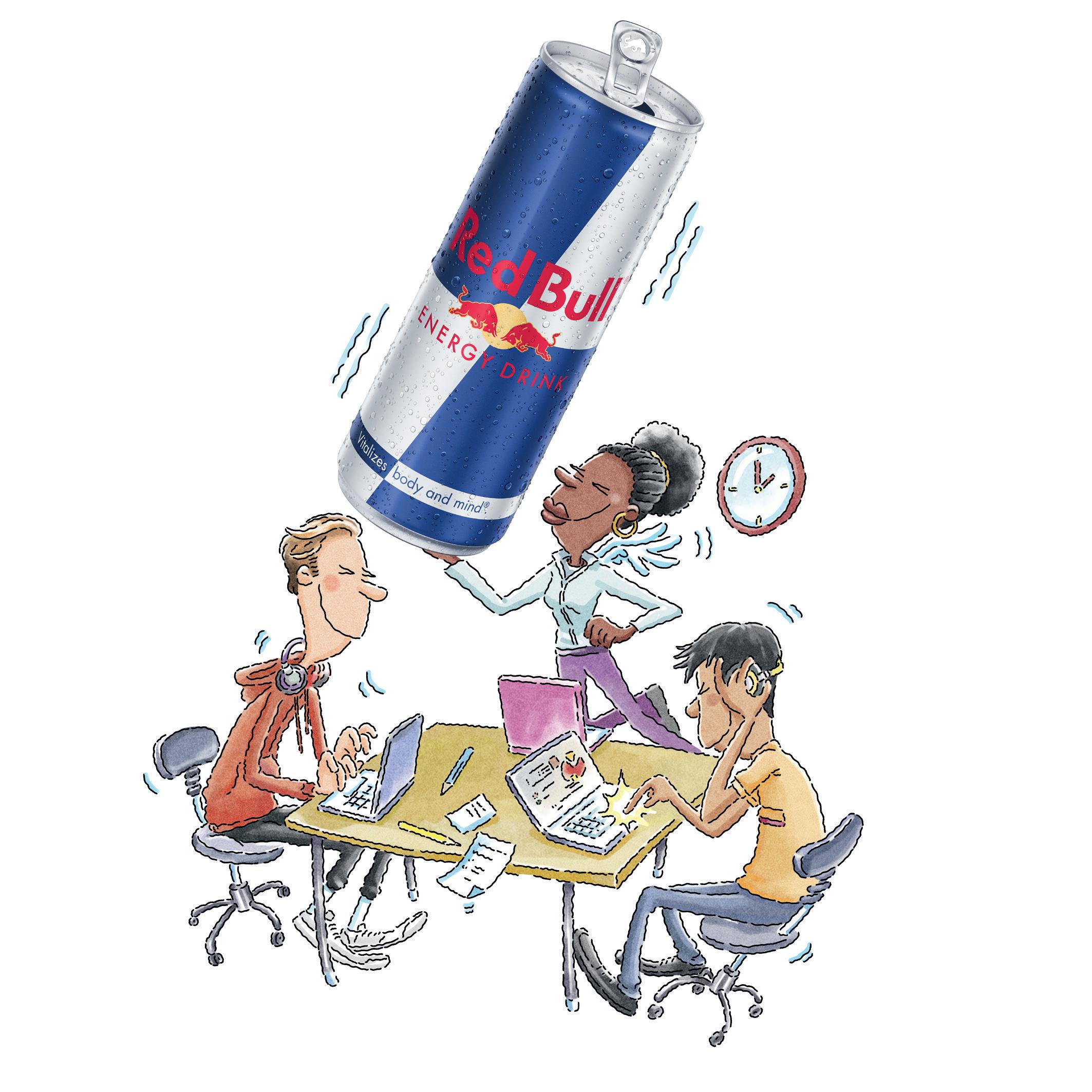
40 ✦ Election






 Maia and Fran xx
Maia and Fran xx






 Words by Zoe Mills (they/she) and Maia Ingoe (she/her)
Words by Zoe Mills (they/she) and Maia Ingoe (she/her)














 Disclaimer: This poll is NOT in any way statistically accurate, take it with a grain (or perhaps a cup) of salt.
Words by Ethan Rogacion (he/him)
Disclaimer: This poll is NOT in any way statistically accurate, take it with a grain (or perhaps a cup) of salt.
Words by Ethan Rogacion (he/him)


 Words by Sarah Bakewell (she/her)
Words by Sarah Bakewell (she/her)


























































